#what's even the point on making a game nobody can win? Just sell commissions if you want people to pay for illus ffs
Text
I asked support about the bugs too
I explained the problems I've found so far, like the message about losing the illu with Nevra and Lance when you actually have them, making some people pay for them for no reason, and the fact that I haven't find a single person in the entire fandom (at least, among here, discord, twitter and facebook) who got Leiftan's illu without paying for it.
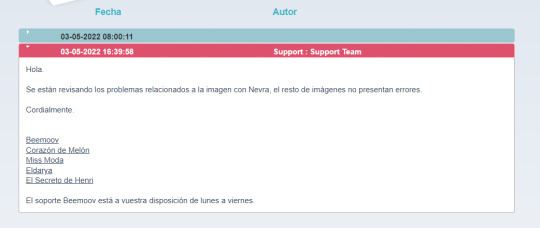
They said they are checking Nevra's illu, but the others are all fine (lie as I got my Lance illu right after the "you missed the illu", but let's say they already fixed that one, even if I haven't check again).
Assuming they are not again lying about bugs so they can get people to pay more trying to get impossible illus as it happened with ML before, if Leiftan's illu is alright, we already know:
It doesn't depend on one choice, as basically everyone had been trying anything so far and nobody unlocked it yet.
It doesn't depend on setting or not the crush, as people have tried both ways and lost it either way.
It doesn't depend on lom, as people with 40%-100% have tried and they all missed it.
It doesn't depend on the father's lom, as people tried getting it up, down and keeping it neutral already but it never worked.
The only other option that pops into my head is that it depends on a specific combination of choices up to the point of the illu (and let's assume a good lom, since it makes no sense if you're not supposed to have it), there are 5 choices up to that moment, one of them skips a choice, which means around 190 combinations where 1 could work (could being the key word as it's probably simply bugged), so even if that's not the case, as a general thought: FᴗCK YOU, BEEMOOV.
#eldarya#what's even the point on making a game nobody can win? Just sell commissions if you want people to pay for illus ffs#eldarya ane episode 12#beemoov#bugmoov
17 notes
·
View notes
Note
Hi, I'm curious about the incident with the Pages, what exactly happened with that? Was Alexander not exactly a "kid" person and the pages didn't really bond with him? It seems extreme for them to want him dead. I thought of Alexander as a people person who wanted to be liked. He seemed to care about his brother, even with his disability. Maybe that's just Renault's influence since her books portrayed Alexander as compassionate and empathetic. I think you'd provide a better take on it, thanks!
What happened with the Pages or, as Beth likes to refer to them (accurately) the King’s Youths* had nothing to do with Alexander’s feelings towards kids or even teenagers. It had to do with timē, or public honor. I’ve written before about the importance of timē in Macedonian politics, particularly with regard to Pausanias’s murder of Philip.
Before I go further, however, I want to point to an excellent article by senior Macedoniast Elizabeth D. Carney, “The Role of the Basilikoi Paides at the Macedonian Court,” in Macedonian Legacies, Howe and Reames, eds., (2008), 145-64** Beth doesn’t just write about Olympias and Macedonian Women. She frequently deals with Macedonian court politics, and that’s what this article addresses. The incident with the Pages is examined in detail, and she comes to somewhat different conclusions about the complexities of it than she did in her earlier “Regicide in Macedonia,” although the latter should be read by anyone wanting to understand why Pausanias killed Philip (see linked post above).
Much of what follows summarizes Beth’s article, but read the whole thing as she explores a number of intriguing issues surrounding the Pages. (Beth is a good writer, clear, unlike some.)
Back to timē. One of the (many) jobs of the King’s Youths involved attending the king on hunts.
Also, a critical ritual that marked the movement from boyhood to manhood in Macedonian society was a hunt wherein the boy was expected to spear a boar (very dangerous prey) without nets (to hold it). If you read Dancing with the Lion: Becoming, Alexander undergoes that very ritual in chapter 3.
Anyway, most Macedonians would have undergone this rite-of-passage in their mid/late teens, possibly early 20s. Much is made of the fact Kassandros hadn’t, even though he was in his 30s. It was seen as a lack of courage (and thus manliness: andreia).
Furthermore, there was a Persian tradition that nobody in the royal hunting party could strike at an animal until the king had. To anticipate the king was a serious affront. Persians were all about rank and status.
Macedonians didn’t really have rules, per se, but something similar seems to have been assumed (unless the king intended somebody else to be chief hunter). In Macedonian hunts, competition was very much the name of the game, and “helping” the king wasn’t appreciated. Lysimachos found that out the hard way. That Krateros had the gall not just to save Alexander from a lion, but commemorate it in an ex-voto, is notable, although it was actually Krateros’s son who commissioned the statue group (c. 320 BCE) memorializing his father’s bravery … after both his father and Alexander were dead. By choosing that event of many in his father’s career, what do you think is the message sent? Not just his father’s ties to Megalexandros, but that Alexander wouldn’t be Alexander without Krateros. Perhaps it was his son’s way to hit back at Alexander’s own elevation of Hephaistion (his dad’s chief rival) to semi-divine status as a hero.
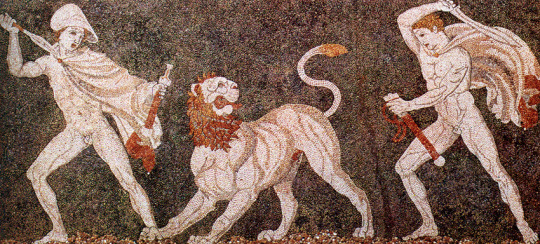
Another bit of background, Alexander had been trucking around Asia for about six years by the time this occurred. He was getting reinforcements for troops, but it’s not clear he was getting other reinforcements: e.g., new Basilikoi Paides. Hatzopoulos has theorized not, or if he did, it was early in the campaign, when he sent back Koinos and Meleager along with the newlyweds to Macedonia for a “break” in the winter of 334/3, to make new little Macedonians. They returned with reinforcements. So, maybe we can shave off a year. Still, and assuming Hammond is right that boys were King’s Youths only between about 14 and 18, these “boys” were getting a bit long in the tooth, even the youngest being past the 4-year appointment.
A lot of focus is spent on the conspiracy, Kallisthenes as their stoic-ish teacher, and fluffed up speeches (written by Curitus) about freedom and tyranny… It comes off very Romanized. I won’t go into Kallisthenes, but he reminds me a bit of some US Senators (Ben Sasse): a lot of hot air about principles while kissing ass with his votes. In Kallisthenes’s case, kissing ass with his glowing, propagandic history written for the Greeks. Even his own uncle (Aristotle) thought he didn’t know when to keep his mouth shut. (Yeah…don’t think much of the guy; can you tell?)
What people have forgotten about—but Beth discusses—is the lead up to the conspiracy. What prompted it?
A hunt gone wrong prompted it. Hermolaos stepped between the king and his quarry, to spear the boar for himself. One source says he did it because he thought the king in trouble, but the other doesn’t give that as a motivation.
A-ha! Did you just say that in your head? You should have. 😊
The fallout: a furious Alexander had Hermolaos not only flogged, but also took away his horse. (Kinda like Dad taking the keys to your car.)
Now, flogging wasn’t that shocking (horrible as it sounds) in Greek and Macedonian society. “Spare the rod and spoil the child” is a saying they’d condone. Normally it was reserved for slaves and children (and women). The King’s Youths were a little old for it but…it’s the king. Curtius specifically states that the Basilikoi Paides performed jobs that were normally slaves’ duty, but being for the king, it became an honor. Plus most of these teens would age out c. 18 into another unit, probably the Hypaspists (Pezhetairoi under Philip) or the Companion Cavalry.
But—if Hatzopoulos is right—these young men may have been some years past 18, which would make a flogging especially humiliating. Even if they weren’t, and Alexander had been getting new Basilikoi Paides post-Gaugamela as well as new troops, Hermolaos was still a touchy teen punished like a “little boy” or a slave for just trying to spear his boar and be a man!
In punishing Hermolaos for insulting Alexander’s timē, Alexander, in turn, insulted his. Alexander no doubt saw it as a breach of discipline and decorum, as well as a slap at his own courage and prowess in the hunt. But to Hermolaos, it was, as Beth points out, “emasculating.”
Keep in mind: these are young men, even if late teens/early twenties. Everything’s a crisis. They’re also the sons of the top tier Macedonian elite, so very tetchy about their honor. And the Basilikoi Paides would have been an absolute stew of competition and testosterone poisoning.
I can just imagine a background to this of his mates teasing him, “When ya gonna get your boar, Hermolaos?” “You too much of a white-belly to face down a boar, Hermolaos?” Etc. Maybe he really did think, for a moment, Alexander was in danger AND this would be his chance! He could protect his king (his job as a Page) AND win his manhood! Two birds with one spear!
Except it didn’t turn out like that.
Smarting from more than the flogging, he would have complained to his friends in the unit, and griping grew legs and became a conspiracy. As Beth points out, they may even have heard fathers and uncles complaining about Alexander’s “Persianizing,” but they only complained. The boys, spurred by youth and Kallisthenes’s attempts to cover his ass-kissing with a pretense of philosophy, imagined themselves—especially Hermolaos and his lover Sostratos—as the new Harmodaios and Aristogeiton. (And yeah, I bet some clever soul pointed out the similarities between Hermolaos’s name and Harmadaios’s.)

So what is usually seen as an event all about Alexander’s increasing Persianizing and tyranny really gives us a peek into the pressure cooker that was Elite Life at the Macedonian court. Now you understand why I keep comparing these guys to a pack of sharks.
More on the Pages, Companions, Somatophylakes at the court....
------------------
(**) The link above takes you to academia-edu where you can obtain a free download not only of that article, but the entire festschrift in honor of Gene. Tim (Howe) and I have made it free in PDF form and very cheap in paper form at Amazon. It’s basically sold at printing cost and a few pennies. All proceeds from paper copies go to the subvention fund of the Association of Ancient Historians, which provides financial assistance to grad students and junior scholars to attend annual meetings. Tim and I get nothing. (You will also help us shaft the dirty dog who bought Regina from its original owner and shafted us by printing and selling copies but giving us no royalties [like we got much anyway]. Academic karma.)
(*) While Beth’s translation of “King’s Youths” is more accurate, I decided not to use it in Dancing with the Lion because it falls awkwardly on the ear, and most people familiar with the court are already familiar with the Pages. That said, I agree with her that “pages” is misleading, causing most to envision pre-pubescent boys after the medieval fashion, whereas these guys are closer to squires.
#Royal Pages#Basilikoi Paides#Pages' Conspiracy#Hermalaos's Conspiracy#Hermalaos#Sostratos#Alexander the Great#Elizabeth Carney#Classics#ancient macedonia#Ancient Greece#Macedonian court#asks#Macedonian Royal Pages#Kallisthenes#Callisthenes#Krateros#Craterus
11 notes
·
View notes
Photo

hello !! i’m anna ( 8teen , they / them , aest ) & i’m currently playing just the one muse — asher lau , the victor of the 70th hunger games , from district two , who seems like the softest victor ever because he hates killing people but is also a world - class backstabber . think richard iii crossed with hamlet . i hate him . for more information , read on , and hit the like button or message me on discord at anna#9701 if you’d like to plot !
[ MARK TUAN , CIS MALE , HE / HIM . ] introducing asher lau , VICTOR of the 70th hunger games , representing district two . my sources say that they are twenty - six years old , & that they’re pretty handy with explosives & close - range weapons . wonder if that did them any good in the arena ? anyways , caesar says you can’t miss them , because they remind everyone of broken , unfinished statues with sharp edges ; the colour of the horizon half an hour after sunset ; silent tears and shaking hands ; promises that were never meant to be kept .
statistics
name : asher lau
nickname/s : ash
age : twenty - six
gender : cis male
pronouns : he / him
orientation : bi
occupation : stonemason
face claim : mark tuan
persona
asher is a very … interesting person . he’s always been a very gentle & soft - seeming person , even after the games revealed what he was capable of . and he is a fairly soft person , for the most part — he’s just also a little … machiavellian .
he has an odd moral compass — he hates violence , but he views things like honesty and loyalty as a sort of foolishness or naïveté and very rarely is completely honest . lies make up his entire life .
when he’s around others , asher acts sure of himself . he pretends that he’s proud of what he did to win , that he believes he deserved to win . people have certain expectations of district two victors , and he seems to fill them perfectly . if he were a capitol resident , he would have been an actor .
some other words that can describe asher : pensive / withdrawn , clever / analytical , unforgiving , deceptive .
just for fun , here are his dark core test results ! he’s not a great person , yike . ( they’re not wholly accurate , the egoism is way off , he has no self - esteem )
early life
tw : death , minor child neglect
asher lau was the youngest of four children — key word being was . for the first six years of his life , everything was normal — he stayed home with his mother until he was old enough for school , while his elder siblings were all already at school — and his eldest brother spent all his free time training to become a peacekeeper , which their parents frowned upon , because the family had never been one of those district two families , far more focused on their craft , producing stunning statues and decorations for capitol buildings .
his eldest sister , the second - eldest child in the family , was the first to die , killed in a freak accident at the quarry . a poorly - timed explosion , a weak patch of earth , a rockfall , and the number of lau children went down .
his eldest brother , the peacekeeper - in - training , was the second — killed in one of the hunger games when asher was still young , ten at the oldest .
then it was just asher and his other elder brother — who passed away of illness when asher was fifteen .
his parents are still alive , but were never particularly close to any of their children , always busy taking on important commissions from capitol residents .
so by fifteen , asher was pretty much alone , and as such chose to throw himself into things that made him feel less lonely : peacekeeper / hunger games training and art . despite being a child , he’d already attracted a following of richer people who liked his work — small garden statues shaped to look like famous people , miniature carvings of architecturally significant places such as past arenas or capitol buildings . his popularity only grew with time .
despite being a mason , and therefore spending most of his time carving , asher also learned how to quarry stone , becoming adept with explosives and learning where to place them to maximise the yield / avoid a rockfall .
the 70th hunger games
tw : death / murder , violence , arachnids
when asher volunteered for the hunger games at age twenty - two , he didn’t quite realise what he was getting himself into . sure , he’d trained for it like every other kid in district two , but he was never expecting to be put into that position — when the poor 18 - year - old who very clearly didn’t want to be picked had their name called out , and nobody else stepped forwards , he’d called out on instinct . a stupid , reckless thing to do — he’d never excelled at combat , and most of his skills lay in masonry — working with a chisel or a hammer or , occasionally , explosives . but it was too late to back out .
the other tribute for district two was a career tribute called marielle klippe , barely nineteen and already as violent as a peacekeeper . she didn’t get along well with asher — he was far too soft , in her eyes , and were it not for him befriending a number of the other career tributes before the games and making himself an invaluable ally that way , she’d probably have killed him at the very start of the games .
he went into the games with the expectation that he wouldn’t make it out alive — after all , he was probably the weakest district two tribute in years . he’d scored fairly low in the training evaluations with an unimpressive display of his limited skills , and all he had was a tentative alliance with the career tributes from districts one , two and four , a vague plan to snatch something sharp and stabby , and his pre - existing near - encyclopaedic knowledge of how to blow things up with minimal resources .
the 70th hunger games arena was a huge canyon ( comparable to bryce canyon in appearance ) , with towering cliffs hemming the tributes in and a tiny creek winding its way through . what little plantlife existed was sparse and scraggly , and the cornucopia and starting platforms were situated on one of the few relatively open spaces in the entire arena , approximately in the centre .
this arena proved advantageous to asher , who’d spent his entire life working with rocks and so was in his element . he managed to acquire a respectably - sized axe from the cornucopia , with help from his allies — they’d come to an agreement that was something along the lines of ‘ let’s pick off all the other tributes first and then it can be a free - for - all ’ . while asher was never fond of weapons , he’d had enough experience in whacking things ( stone , mostly ) with hammers and the like , so an axe was probably a good choice .
the games went just about the same as any others initially , with the career tributes hunting down the less experienced ones . but , the gamemakers being the gamemakers , there were twists coming — namely in the form of mutts . huge spider / scorpion hybrid creatures ( similar to the canyon crawlers from atla , but worse ) came scuttling over the edges of the cliffs on the fifth day of the games , when there were fourteen tributes still alive . asher rigged an explosion on one of the cliff faces , using a sponsor’s donation , bringing down a huge rockfall that left six tributes dead and crushed the vast majority of the mutts . one of the six was his fellow district two tribute , marielle ( whose family were absolutely furious with asher when he returned home ) .
the next few days were , according to viewers at home , incredibly dull — the eight remaining tributes spent this time searching for or establishing hideouts , hunting down the rest of the mutts and generally taking their time to recover from the deaths of their friends and allies .
the vicious murdering started back up again soon enough — the gamemakers announced a feast , where there would be four things up for grabs : a water purification kit , because the tiny creek was growing polluted with blood , dirt and god - knows - what ; a loaf of bread , because they were beginning to run short on food , having been in the arena for nine days at this point ; a first aid kit , helpful for if the gamemakers unleashed another experiment against the tributes ; and a crossbow with a snarky note attached — ‘ if you’re not going to go near each other , perhaps you can pick the rest off with this ’ . the supplies were all perched atop a rocky spire close to the centre of the arena , forcing the tributes to climb to the top in order to acquire them .
asher , who had stuck with the two remaining career tributes ( one from district four and one from district one ) and gained popularity for his useful skill , was nominated as the one from their group who ought to go to gather the supplies . despite being well aware that they were trying to get him killed since he’d pretty much outlived his usefulness , he went — but slowly . by the time he reached the spire , there were already three people climbing it , while two stood guard at the bottom . rather than attempt to take them all out , asher approached carefully , with his weapon held low in a gesture of peace , intending to negotiate a new alliance or truce . a brief duel ensued , though it ended in an agreement that he would help the five of them to take out the career tributes , after which they would all be able to turn on one another without the danger posed by those two .
that didn’t go quite as planned — they’d intended to sneak up on the career tributes and ambush them , but the secret had gotten out . nobody was quite sure which of them had betrayed the others , but the fact remained : they’d known they were coming , and the ambush failed spectacularly . within minutes , eight became three : a district four tribute , a district seven tribute , and asher , who had stood back and watched the battle unfold from a safe distance .
as the audience and final non-career tribute were about to discover , this was because asher had been the one to sell them out . his triple - crossing was an impressive feat , and people saw him as a manipulative genius — although he maintains that it was mostly luck that they bought his act of loyalty .
the final three tributes were in a standoff , nobody willing to make the first move — at this point , a misjudged blow could mean the difference between death and victory . and , well , the longer you hold onto life the less you want to lose it .
it happened so quickly that to this day , asher isn’t entirely sure what really happened . but it went something like this : the district seven tribute lunged at asher , who barely dodged and received a deep gash on his shoulder from their knife ; then the district four tribute decided to join in by attacking the district seven tribute . asher , trying desperately not to think too hard about what he was going to do , grabbed the first weapon available to him — the axe he’d acquired at the beginning of the games and not really used since — and half - swung , half - threw it at the other two , watching in revulsion as the blade separated a head from a body and buried itself in the other’s skull .
the end of the 70th hunger games was considered by viewers to be a somewhat fitting one , though not the most exciting .
asher’s final body count was eight , only two of which were direct , and he came out of the arena with only a shoulder wound and acute dehydration .
after the games
the past four years have been rather eventful for asher . he’s mentored a number of tributes through the games , to varying degrees of success ( nero being the only one that’s survived thus far ) . he grew far more withdrawn in the months after his games & the victory tour , retreating to his new home in the victors’ village to carve stone in silence .
his garden slowly filled with statuettes of scenes from his nightmares — mostly his games , but other things as well . it became his way of working through his thoughts — and there’s something satisfying about watching these things that have caused him so much trauma be turned into perches for birds .
in the capitol , he’s become something of a celebrity — popular amongst younger citizens for his soft - spoken - ness and apparent gentleness ( although he’s well aware that those aren’t the only traits they find attractive … capitol people are weird ) .
despite this popularity — actually , no , because of this popularity , asher doesn’t venture into the capitol particularly often . he has never been fond of crowds , and even less so when they’re actually paying attention to him . even during the lead up to the games , he tends to keep to himself when he’s not mentoring tributes .
congrats ! you made it to the end of this absolute monstrosity ! sadly , i ran out of braincells , so i haven’t included any wanted connections , but i’m open to anything .
#* [ ✨: ooc ]#oddsintro#now im going back to sleep#i just coincidentally woke up at 2am it was meant to be#death tw#violence tw#arachnids tw#murder tw#child neglect tw#(its mostly glossed over & minor but! just in case!)
9 notes
·
View notes
Text
Okay I’m about to spill some tea
SO “oh look, taylor swift is dragging up past drama to sell her new album, look at her playing the victim again, you’re still over”
is what all the haters happen to be screaming (among over ridiculous things) tonight, following the release of Look What You Made Me Do, the lead single to Swift’s 6th album: Reputation. But let’s take a little trip down memory lane to see if Taylor really is playing the victim. Hold on ladies, it’s gonna be a long one.
2006-2008

Taylor broke out in 2006, and when Love Story stormed the charts in late 2008 she became a global superstar and thus named “America’s Sweetheart” a bittersweet and dangerous title for any young female star, because it’s so easy to fall from the top. She was immediately held to an impossibly high standard of perfection, in every aspect of her life, and she handled this with grace.
2009 - early 2012
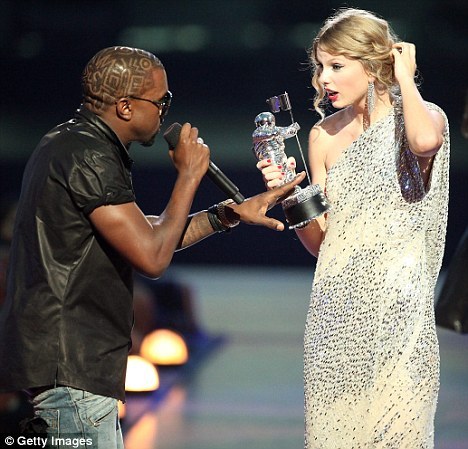
We know what happened here, no real need to recap, but the result of this event was Kanye being thought of internationally as a horrific bully. Which he is and continues to be until this day. Taylor went on to be the youngest artist to win album of the year at the Grammys, the world so does love an underdog.

Taylor responded to West the way she knows best: song-writing. she released her phenomenal 3rd album Speak Now and it featured a heart-breaking track named Innocent.

It's okay, life is a tough crowd
32, and still growin' up now
Who you are is not what you did.
You're still an innocent.
Swift, aged only 20, twelve years junior to her bully, responded maturely, forgiving him. At the same time she wrote a grammy-award-winning anti-bullying anthem of the name “Mean,” said to be about a critic who wasn’t constructive in his criticism, just plain cruel.

Soon after a standing ovation at the 2012 grammys, Swift brought the speak now era to a close.
Late 2012 - 2014
Taylor’s award winning curls disappeared with the release of her Hunger Games singles, and shortly after, she released We Are Never Ever Getting Back Together. Now 22, Swift was growing up, and, if you’ll pardon the pun, the release of the Red album caused a swift departure for her “sweetheart” title. Suddenly the romantic theme to her music was causing people to role their eyes. 2013 was a year of jokes about lists of ex-boyfriends, “keep your sons, brothers, dads and boyfriends away from Miss Swift, she’s destroy them, try to bury them with a song.” This is where the words “Playing the victim” first appeared. She was no longer seen as an innocent princess, the grown woman began to wear less fairy-tale-esque clothing, in favour of her now infamous black shorts. she attended award shows, knowing full well she was going to have to take an insult on the chin, and no one would stand up for her. Everyone was laughing. Her unforgettable but brief romance with Harry Styles caused insane online backlash, his fans taking her reputation for writing about personal relationships as an excuse to tear apart their relationship. Just one of many examples of the opinions of people that don’t know her, have never met her, believe they have a right to bad mouth her because “she’s Taylor Swift”

2014 - 2017
The released of the record-breaking 1989 album saw Taylor win back her popularity for the first time since before Styles. She declared that she could not be thrown off her game by her haters in “shake it off” insisting she will be herself more. But the real take down came in the form of “blank space.” Her satirical chart-topper saw her take back the narrative for the first time. She stated that she decided to play by their [the media’s] rules, writing and performing from the point of view of the “jet-setting man-eating psycho” they insisted she was. And the media, fickle as ever, lapped up every word. Impressed this silly little girl had played them at their own game, they placed her back on the pedestal.

Thus began the age of the “squad”

Taylor’s Victoria Secret Performance allowed her to form friendships with the angels, and the media nicknamed her ever-growing group of friends a “squad.” People mistakingly believed Taylor had formed this squad as an clique, an army against her latest enemy, Ex-BFF Katy Perry. We all know the details of their feud and Taylor’s smooth take-down track Bad Blood. I guess I can forgive the confusion, but members of the so called squad have stated that it’s not a clique, it’s just a support group of mostly women. Taylor had bitten back at the media’s representation of her, calling them out for being sexist. I however, personally don’t see it as sexism. I see it as bullying. The simple fact is that no other celebrity on the planet get attacked so much for so little crimes as Taylor Swift. This “squad” theory began positively but soon took a dark turn, as numerous times Taylor Swift was referred to as a “Regina George” Who famously played the victim in the 2004 blockbuster hit “Mean Girls” despite secretly being the mean girl herself.
Following her new popularity, an old ghost made an appearance in her life. With encouragement from their mutual friend Jay-Z, Taylor Swift and Kanye West made up.

Taylor even presented an award to him, mocking the infamous statement: “Imma let you finish...” by ending it with “but Kanye West has had one of the best careers of all time” The legendary feud was over. Taylor was on top of the world.

Or so we thought. With the release of Kanye West’s “Famous” came a rather degrading lyric:
“I feel like me and Taylor might still have sex
Why? I made that bitch famous (God damn)
I made that bitch famous”
Once again, we know the details. Taylor’s not completely innocent, maybe she shouldn’t have claimed she knew nothing of it. But take away your opinions on Miss Swift. Imagine if someone who bullied you, humiliated you, suddenly wanted to end all strife and flaunt an alliance. You’d jump at the chance, I know I would, and have. Taylor has previously proved to be the forgiving type, and in that phone call you can hear how eager she is to please. I believe Taylor did not understand exactly how degrading the finally song would sound, brushing her off, taking credit for her success, coupled with a video depicting a life-like naked wax figure of her he commissioned thousands into making right beside him in large bed full of controversial figures, including sex offenders and abusers. Imagine that had happened to YOU. Not Taylor Swift Trademark, the untouchable millionaire business woman, but a real woman, with real feelings. You would be scared. You’d be filing restraining orders. She had trusted him and let him in. He humiliated her for a second time, and in her panic she responded badly.
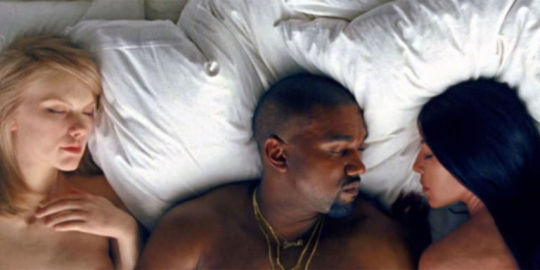
And yet, for some reason, the world took his side. This degrading song and disgusting video was somehow righteous over obscuring a little truth. Taylor’s response to the video release was such:

The internet wasn’t having it though. The final sentence became her death sentence, and thus began a meme and a #/taylorswiftisoverparty. Fans of Swift did try to defend her, but they also knew that Miss Swift was definitely not over.
2017 (present day)
Finally I have reached the release of “Look What You Made Me Do” the lead single of Swift’s 6th and highly anticipated album “Reputation”

So now we have tracked the history of Taylor “Playing the victim” I would very much like to address why LWYMMD is certainly not her playing it. I would like to push Kanye, Kim, and Katy aside, their actions were not to be admired, but this post is ultimately about the media and the public’s opinion of Miss Swift.
SO LETS ANALYSE SHALL WE:
The role you made me play
Of the fool, no, I don't like you
I don't like your perfect crime
How you laugh when you lie
You said the gun was mine
It was the media and the public that insisted that Taylor was two faced, a snake, they forced her to play a role in their narrative. This public side of the role was like a villain, and the real way they played her was as a fool. The Media tricking her into trusting them, and then pushing her off the pedestal they put her on.
But I got smarter, I got harder in the nick of time
Honey, I rose up from the dead, I do it all the time
I've got a list of names and yours is in red, underlined
Swift is no longer playing nice. Did everyone really expect her to lie down and let Kanye win? She’s out for revenge, and so she should be.
I don't like your kingdom keys
They once belonged to me
You ask me for a place to sleep
Locked me out and threw a feast (what?)
The world moves on, another day, another drama, drama
But not for me, not for me, all I think about is karma
And then the world moves on, but one thing's for sure
Maybe I got mine, but you'll all get yours
This is a general address to those who supported her through her success at the start of the 1989 era, and then abandoned her when she fell from grace. They labelled it as Taylor getting what was coming to her, but she knows that eventually the tables will turn again and their time on the chopping block will come.
I don't trust nobody and nobody trusts me
I'll be the actress starring in your bad dreams
Their betrayal has lead to her inability to trust, and as she says, they all believe she’s a snake, she’s two-faced, if they don’t get her first she’ll get them. Her insane success has made her “untrustworthy” The world is forcing her to be someone she’s not.
"I'm sorry, the old Taylor can't come to the phone right now."
"Why?"
"Oh, 'cause she's dead!" (ohh!)
This tongue-in-cheek spoken part is almost a throwback to Blank Space, she joins the taylor swift is over party, okay, we’ll play it your way, just before I destroy you. It also sadly suggests that their cruelty and endless abuse killed the forgiving version of her.
Ooh, look what you made me do
Look what you made me do
At first, I didn’t quite get this line. She hasn’t done anything yet? What have they made her do? But then it clicked. They made her be a part of the narrative she wanted to be excluded from. They asked for her to play the bad guy, they insisted on her Villainous persona. They insisted she was a snake. So they made her become the snake.
Taylor has never once purposely “Played the victim.” Swift does not want to be the victim. So, this time around, she’s not forgiving. She’s not crying. She’s not ignoring it. She’s fighting it. Taylor Swift is angry, self-aware enough to know at this point she has no other route to take, bar buying an island and never being heard from again. She’s claiming her own fury, her own narrative, her own reputation.
And she’s out for blood.
Hiss Hiss.
12K notes
·
View notes
Photo

Book 2, Chapter 3, Page 5
Archived Text Follows:
Hey Everyone,
An Ownsmann’s work is never done, eh? There’s something about the ‘Militant Corporate’ look that’s always appealed to me.
As a quick heads-up/shout out, my buddy Dan Condaxis is a freelance User Interface Designer. Over the last few month’s he’s been doing a redesign of the UI from Mass Effect 1. If any of you are interested in the nitty gritty of how to make a proper game HUD then check out one of the links below.
Part 1
Part 2
Part 3
Part 4
If you’re working on a project that might need his skills then shoot him an email, he’s open for commissions.
Thanks for reading,
– Luther out
Comment Text Follows:
nweismuller - Well, historically, war has been very bad for business overall (if perhaps lucrative for military equipment manufacturers), given its tendency to destroy value. Our friend here may just be looking at how destructive war can be.
Iarei - http://www.ratical.org/ratville/CAH/warisaracket.html
nweismuller - Indeed, that rather supports my point. But you’ll note that our contractors here are to large extent paying the bills themselves, rather than taking them out of a whole nation. Which I think would help reinforce my point that in their situation, it is going to be very difficult to make war pay- since they largely have to pay for it themselves.
Iarei - True, yet Mega Fun Foods chose to pay to keep them in it. So where’s the pay out for them? The land isn’t worth it, so it’s reasonable to assume there’s an external benefactor; Either another nation funding this little spat to weaken Dhuvallia or someone within Dhuvallia instigated it for their own political or monetary purposes.
Hell, if who ever makes those pretty blue Limbs gets paid well enough, then paying to keep a weak dog at the throat of the Dhuvallian government could well be within their interests.
SteelRaven - I’m sure Mega Fun Foods is own by a even larger company operating behind the scenes
Mr. Patenge - To give an idea of scale, Mega Fun Foods is huge. They’re a bout on the scale of Coca-Cola or Nestle in our world ($46.8 Billion and $92.1 Billion in annual operating revenue respectively). It doesn’t get much bigger than them. Explaining this during the course of the comic without going on a Tolkien-esque tangent however is another story…
However, you folks are correct. Paying for all of these security units in a sustained engagement would be incredibly expensive, even for a mega-corporation. There’d have to be a damn good reason to pony up all that cash… right?
nweismuller - One would certainly think so. Running a war against a nation-state, which is more or less a structure specifically evolved for war, would require a very compelling reason here…
tkg - I think it’s been covered in comic. The land their fighting over has a agricultural crop of some value to MFF. After whoever in Dhvalia ‘sold’ the land did it MFF and who knows how many other corporations probably invested in the land in question to get said crop.
Sazuroi - It may actually have less of a “tangible” (numarable?) benefit, because losing that land would reduce the amount of land they have access to overall, since Dhuvalia certainly isn’t going to sell/pawn it back to them. Hence, the expected future security/income may outweigh the currently incurred expenses, especially since there are some other factors at play:
That frantic bidding that accompanies many battles, as we’ve seen, would create income, since “betting” always results in the bank winning more than the players, and money paid for corporate shares goes to the company, increasing their “backing”, which would at least mitigate any losses from combat, since they are to a large extent covered by either combatant risk or income due to shares bought (part goes to the combatants, part stays with the company, from what I recall of that scene).
Also, even if that land takes some damage, it’s essentially still arable unless the war materiel is a pollutant, though judging from that reaction to MFF’s food, that would not be seen as a deterrent. If they just dissolve the crops into base chemicals and slap them into some edible goo, filtering out pollutants like that is likely possible. So, the land having no value on its own means the only loss is in war materiel (and lives, but lives lost don’t necessarily incur monetary costs depending on laws, making that potentially irrelevant) and materiel lost, especially if it is not funded by debt, does keep the production of the armament industry going. The largest “cost” of war is in collateral damage to infrastructure and population, or resource opportunities, and of course trade opportunities with your enemies (only if they existed beforehand), if all those factors a minimized (arguably the case here) the loss is in high-maintenance limited-purpose capital (war machines, guns, ammunition…), and restocking those losses only redistributes money, but doesn’t destroy much value (since the value of armaments is in deterrence and dispensation of force/resistance to force, meaning they are essentially worthless if nobody is intimidated or killed by them). Since I recall forcing people into agreements if forbidden in the free market, the value of weapons would lie near-exclusively in international warfare.
These factors only justify the situation as seen, though, since some undisclused highly valuable resource or other objective to be accomplished on behalf of an undisclosed party may still play into this. Wars in Welles’ 1984 were fought (spoiler) to justify domestic repression and provide a colorful evenening news, essentially, and the main driver of warfare in Code Geass was a shiny pink mineral that allowed for essentially magical abilities in small-scale combatants (Not a spoiler since they outright say that in the first episode). Without more worldbuilding, we wouldn’t know which of the reasons it is.
(For the record, I don’t mind Tolkienesque tangents, but keep my own background material under wraps and occasionally considered opening a seperate web presence to publish it as a “side dish” for my story blog. Maybe a wiki.)
GreatBasinCoyote - Is there a possibility that for a small donation, an individual could receive a shirt-sized file of the 1st Investment Recovery Battalion logo? Seeing the logo drawn on the corporate representative really looks cools.
Mr. Patenge - We’re almost done with our T-shirt design (I mean it this time) and I can’t wait to have a link up for the store soon. As for the 1st IRB logo, we can look into that soon.
1 note
·
View note
Text
5 Things Everyone Gets Wrong About flalottery
The possible cause affidavit additionally alleges that Jones constantly lied to investigators about the case. The decedent was inclined to talk brazenly about her winnings and (her daughter) was concerned this might have been a motive for her homicide,” a possible cause affidavit mentioned. The closest factor Pastnor will have to Stephens will be 6-9 freshman Moses Wright, whose final development spurt came so late that he wasn't even rated by the main recruiting companies. Meaning the drawing on Tuesday, Dec. 17 will likely be value $372 million with a money choice of $251.6 million. MELBOURNE, Florida - The Florida Lottery proclaims that the Thanksgiving 2019 Trust, of Indialantic, Florida, claimed a $2 million prime prize from the $10 GOLD RUSH Basic Scratch-Off game at Florida Lottery Headquarters in Tallahassee, Florida. The opposite two second-prize tickets were sold in Vermont and Florida, with nobody successful the grand prize. MELROSE, the Bronx - A Bronx liquor store is celebrating after promoting one in all just three second-prize profitable tickets nationwide in Wednesday's Powerball flalottery drawing, according to the new York Lottery.
The lucky new millionaire has but to come forward, however the liquor store homeowners, Jaime Jimenez and Jason Tirado, are still celebrating their store's newfound fame, in accordance with the new York Publish. The perfect years are but to come back! 21. That winner has but to come ahead to say their prize. The drawing happened days after a pair from Suttons Bay got here forward to assert an $80 million Powerball win. The drawing came about every week after a fortunate player in Michigan was the lone winner of the $eighty million Powerball drawing on Saturday, Sept. LANSING, MI - There was no winner of the $50 million Powerball jackpot for the drawing held on Saturday, Sept. Earlier this month, an Ogemaw County man claimed a $17 million Lotto 47 win after nearly lacking the deadline to play the game. There are a wide range of play styles so you'll find your favourite: Straight, Box, Straight/Box, 1-OFF, Front Number or Again Number.
You possibly can calculate every set of odds for every totally different lottery sport you play. You'll be able to play Choose three numbers as a “back-up” wager. Choose 5 is an exciting FL recreation with a high prize of $50,000! The $5 sport, $500,000 SPECTACULAR, launched in August 2019 and provides more than $48.7 million in prizes, together with six high prizes of $500,000. The $30 recreation, FLORIDA 100X THE Money, launched in February 2018 and features eight high prizes of $15 million - the most important Scratch-Off top prize provided by the Florida Lottery. The game also gives 20 prizes of $1 million. BREVARD COUNTY, FLORIDA - The Florida Lottery introduced that the managing member of ABIDE7LIWA, LLC, Kurt Panouses, of Indialantic, claimed a $15 million high prize from the FLORIDA 100X THE Cash Scratch-Off recreation, at Florida Lottery Headquarters in Tallahassee. TALLAHASSEE - Florida Lottery Secretary Jim Poppell, a holdover from former Gov.
The Lottery reinvests 98 percent of its income again into Florida’s economy via prize payouts, commissions to greater than 13,000 Florida retailers and contributions to education. There were no brass bands and streamers to welcome back the soldiers from Vietnam. I hope this has been helpful to all my readers out there! Fill out a Every day 4 playslip or ask for Fast Pick to let the pc randomly select your numbers. The successful Fast Decide ticket was bought from the 7-Eleven minimart situated at 4520 Bonita Beach Rd. Bonita Springs. The retailer will receive a $100,000 bonus commission for selling the profitable ticket. The retailer will obtain a $30,000 bonus commission for selling the profitable Scratch-Off ticket. The ticket is one in every of two successful tickets each price $96,571.51. Beasley got here off the pine in sixty three of 81 video games for the Nuggets and was an immediate offensive spark, averaging 11.3 points on a TS% of 59.9 - outright elite numbers for a perimeter participant, and especially one whose common shot distance was 16.8 feet.
He was about four feet and really curious to see what was splashing on the seashore. The second prize got here from matching the Choose three numbers drawn that evening, which have been 2 - zero - 0. Schroeder purchased this profitable ticket at Murphy Categorical, 4294 Osage Seaside Parkway, in Osage Seashore. PANAMA City Seashore - Texas Roadhouse of Panama City Beach, 15660 Panama City Beach Parkway, will offer veterans and active members of U.S. You will be very glad that you simply purchased a seat on your little one in case you have a turbulent flight or bumpy landing. You needed to have a full safety workforce and martial arts experts to open the cell door. Nonetheless, gamers make sure the validity of this methodology today and have throughout the generations. After seeing the information report about George Stinney, I knew I had to write down about this immediately. Poppell grew to become lottery secretary in 2017 and was retained in the $142,000-a-12 months position as DeSantis transitioned into the governor’s workplace after being elected in November.

0 notes
Text

❝ Can you believe that skyline -- ? Ah, well, perhaps you all can’t, you haven’t seen it yet ! Believe me when I say its beautiful, and I’m a man who knows beauty !
❝ I know, I know, ‘ Laslow don’t be wasting time ’, but I assure you, you’ll LOVE what I have to say this time ! I have excellent news regarding our schedule of events ! Er, that being we have one. Tentative as it may be, myself and Robin squared ( talk about weird ?? ) have agreed that this will give you all the basics of the week’s layout, so you all can plan ahead ! Considerate, right ? I know, you can thank me later for being so thoughtful. ❞
JUNE 25 – SUNDAY KICKOFF.
SNO CONE SOCIAL.
Cabana check-in, but save the unpacking for later ! Complimentary sno cones are served all day long as we, the mods, spend today welcoming guests to the luxury Hotrealms resort! Grab a sno cone from the cabana bar because today is the day to get to know your fellow resort comrades! Walk around the resort and view the boardwalk, and as always, I am ALWAYS available for any lonely adventurers. Take a stroll on the beach and wade in the water, go for a swim if you’d like ! This is just a day to get a feel for your surroundings and explore everything the resort has to offer ! Kick back, relax, and socialize ! . . . or don’t, if that’s what you prefer.
JUNE 26 – SWIMSUIT SHOWCASE
Did someone say ladies in bikinis – AHEM – er, swimsuits all around ? Surely you’ve already procured a swimsuit, why not show it off ? We are now taking reservations to walk the stage for this Summer Scramble’s Swimsuit Showcase ! Handmade or commissioned, if you’re interested in the opportunity to earn bragging rights about being on stage, then this is for you ! Come in your bikini best -- or, your best in general I suppose, whatever your preference, we have room for you on the catwalk !
Also, Robin and Reflet have given me word of a sandcastle contest ! I personally will offer you bonus points if you manage to build your sandcastle on someone. I would assume they will have more information on this later !
***STARTING MONDAY, JUNE 26, SENDING ☼ WILL EARN YOU A TURN AT THE MONOMONO MACHINE FOR A PIXELATED PRIZE! THIS WILL CONTINUE ALL WEEK. YOU MAY SEND ONE ONCE A DAY. MODS WILL BE WORKING ACTIVELY TO MAKE SURE ALL ARE ANSWERED DAILY, BUT PLEASE BE PATIENT.
JUNE 27 – BOARDWALK BUZZ
The boardwalk is NOW OFFICIALLY OPEN. All shoppes have been open for a while now, we realize, but now there’s more to do ! Vendors have all moved in and – is that lemon cake ?? Anyway, there’s going to be a whole big stretch of gift booths, and leis are available for purchase ! You may see some familiar faces running booths of their own, so be sure to give them your support and stop in ! Avoiding having to walk all the way into town for something small for your love interest has never been easier! Well, except if they need a new shirt, or a sunhat, but you get the point. Also, along with the boardwalk vendors, we’re excited to announce the dunk tank among many other activities! Yours truly will take the first seat ( more like forced into it ) and the other two will follow suit. No ticket necessary, just jump in line until time limits are cut short, as will the lines. But this is your chance to show no mercy, and get your game face on for Wednesday ! And have I mentioned the sunset from the view of the boardwalk ? Not even a beautiful girl could distract me – er, alright, alright, maybe she would a little.
And I’ve also heard word of a . . . crushing watermelons contest . . . ? What in the Gods’ name . . I suppose some of these people can crush watermelons with their bare hands. Perhaps that’s something someone can enlighten me on later.
JUNE 28 – VOLLEYBALL AND BEACH WRESTLING
Is your team ready to take the trophy home ? Is your body beach ready ? Wednesday is being spent on beach front territory ! The volleyball nets are going up, the referees are ready to call the shots. Gather up your teams and play to win ( you’re joining TEAM LASLOW, right ~ ?) . Trash talk is always fun, but don’t get out of hand, now ! Nobody likes a sore loser, especially when you already know you’re going to lose ~. Compete to defeat, my friends, lay on that sunscreen thicker than faceless skin !
For those uninterested in volleyball but still wishing to compete and hone their skills: maybe beach wrestling is good for you ! Go up against other strongmen, or women, in a test of physical strength. Nobody likes a face full of sand so come prepared to knock your opponent to the ground. Try to keep rough physical harm such as actually making someone bleed all over the sand to a minimum . . we’re really trying not to have any casualties . . please don’t turn this into a death match. I’m begging, I’m not a very good nurse.
Not the sporty type ? Grab some goodies and flags to wave from the boardwalk and cheer on your favorites to victory! They’ll love hearing your harmonious cries ~, even when you’re cheering for me.
***Volleyball teams ARE ENCOURAGED. There has been talk on the dash about potential teams and this is to organize all of those. Matches will be generated ala ‘ hunger games simulator ’ style. We will be posting a call for captains very soon, are we’re looking for 4-8 teams to compete gauntlet-style. If you are interested in forming a team of 10-12 players, be on the lookout. Ground rules and more description on this to come ! All ‘ teams ’ will get a special treat!
JUNE 29 – WATER GUNS, PAINT BALLOONS, AND HAVOC OH MY
Seems like Anna has some new ‘ weapons ’ to share with us ! Only these come in the form of pelting your enemies without mercy! I daresay no one is safe from the attacks of those who even they think they can trust. All of you sitting ducks in the umbrella lounge had better watch out! Oh, it would proooooobably be wise of you to not wear your Thursday best for this, ladies and gentleman, it’s about to get messy ! Water guns and paint balloons will be available at checkpoints for pickup, only one weapon per person but balloons are unlimited ! Let’s see who can avoid getting hit ! No holds barred and no one’s off limits – w-well except for me of course ! You wouldn’t hit your humble host now would you !?
JUNE 30 – BONFIRE/MOVIE NIGHT
Spend your day how you like, my friends, but you have to join us for the bonfire ! Anna has told us she’s providing the makings for uh, s’mores I believe ? Chocolate and marshmallows on graham crackers ? Sounds good to me ! I’m certain a few candy-loving souls will melt at the taste of one! Also, yours truly will have an extra little treat in store for you ! In addition to this, once nightfall is upon us, we can partake in SCARY STORIES. Bring your most terrifying stale to hold the attention of your comrades and really scare us ! Make us so paranoid to walk back to our cabanas without holding someone’s arm afterwards ! Top three scariest stories get prizes ~ Good enough to give it a go, right !? C’mon, don’t be so afraid to give us a fright !
*Scary stories can be SUBMITTED to the EVENT PAGE INBOX. These will be compiled into a compilation post for other followers to READ and VOTE on which one they think is best! NAMES WILL NOT BE ATTACHED to give fair chances and rule out ‘popularity’ votes. DEADLINES FOR SCARY STORIES ARE BEFORE THE 30TH !!
** Scary stories MUST be original. Any submitted may be subjected to be cross referenced for copy/paste. Obviously be as creative as you want, and as in character as you can be with this! Names/URLs will not be posted with them to again, avoid popularity vote, so being ‘ in character ’ is encouraged !
*IN ADDITION, we will be planning a movie night rabb.it stream ! A poll will be going up to vote on a movie to be shown FRIDAY NIGHT. Time is still TBA once we are able to figure out an ideal timeframe. So pop some popcorn and join us !
JULY 1 – FINALE FIREWORKS SHOW
Ah, the end of a vacation can be so bittersweet. The final day is always the hardest, is it not ? Having to pack up all of your things and shamefully realizing you’ve bought too many souvenirs . . wait, that isn’t just me right ? Fear not, my friends, this wonderful week shan’t end with an upset, but with a bang ! Preoccupy your day with whatever you would like but join us Saturday night for FIREWORKS ! Anna is helping me put together a great lineup of a lightshow for you all ! We’re hoping you’ll enjoy it and that will wrap up a breathtaking and relaxing week up nicely with a bow as we all return home !

❝ And I, your humble host, will be most everywhere during this week. If we bump into one another, do join me for a smoothie, eh ? ❞
❝ This is all for now, but if YOU have any suggestions, don’t be afraid to approach me or either of the other two, or drop something into our suggestions box. And if you would rather run something on your own, OUR VENDOR APPLICATIONS are still open ! I would love to see more of my wonderful comrades selling their wares or contributing to this in any way they can ! It’s been lovely to see the excitement already ! We’ll see you soon ! ❞
** Many of the main events will have their own ask meme to coincide with it ! Activities and other roleplayer’s booth events are taking place everyday, but of course, people are busy and threads and ask prompts can be continued on other days, and even past the event week ! We are actively working to make this schedule work and be fun for everyone ! We hope you’re as excited as we are !
#mod lasnigo ;#sea sky and sun ;; summer scramble#tentative schedule of events as we see them!#we're so excited to present this to you guys!!
37 notes
·
View notes
Text
Jay Z: Reasonable Doubt
He was only going to make one album. So goes the story of Reasonable Doubt, anyway, a tale Jay Z has regaled us with at every opportunity since its release on a new and unproven independent label called Roc-A-Fella records. It was the album he made before the world was listening, with only a close crew of friends and associates at the late age of 26. Every contributor was paid in bags of cash, piles so mountainous nobody involved could be mistaken how they were acquired. It was the valedictory statement of a drug kingpin and the commencement of a brand, a lifetime’s worth of private thoughts discharged before the true business of empire-building could begin. Grand opening; grand closing.
Shawn Carter has always been fiercely protective of his first full-length, to the degree that it sometimes feels like it belongs more to him than to us. He keeps yanking it from streaming services, as if the album is a troubled prep-school kid. He’s thrown it a series of lavish birthday parties, celebrating its 10th anniversary with a full-concert performance in 2006 and commissioning a documentary to air only on his TIDAL streaming service for its 20th. He has curated its legacy so assiduously that Reasonable Doubt seems like the one part of his story about which he remains insecure, the piece of his legacy that might blink out if he didn’t take care of it.
Perhaps he’s never forgotten its relatively inauspicious release. “Ain’t No Nigga” was a hit, for sure, and the album was certified Gold on its release; solid, but hardly world-conquering in the dynastic era CD sales. Critics were impressed, but not overly so: Mainstream and non-hip hop publications noted it was clever at times but mostly a rehash of Scarface and gangster-movie tropes. The Source gave it 4 out of 5 mics—approving, not rapturous. The smaller but more influential world of hardcore rap intelligentsia paid attention to him, but in the shadow of Biggie and Pac, Jay felt like a lesser myth. He announced the album with a statement that he was retiring and henceforth “would only be about the business.” In some alternate universe, that might’ve been it.
In Jay’s mind at least, the album certainly marked the end of an era. At this point, by his own cold-eyed accounting on the song “Politics As Usual,” he had been selling drugs for “ten years.” Along a parallel track, he had been flirting furtively with being a rapper. He linked up with Big Jaz (later Jaz-O), doing a stint as the older man's baby-faced sidekick and kicking the triplet-time “figgity-figgity”-style flows that were sweeping New York at the time. He toured, briefly, with Big Daddy Kane, and spit some freestyles for New York hip-hop radio. He was an impressive local kid, but no one’s idea of a worldwide star.
In that murky time between his puppyish Jaz-O beginnings and his sober and assured reappearance on Reasonable Doubt, he figured some things out. First, nobody wanted to hear Jay Z excited. Composed, assured, jaded, deeply unimpressed—these were emotions he could radiate without even trying, and they were truer to his nature. Gone were the endearing attempts at dancing alongside Jaz, looking like a kid at his own bar mitzvah being coaxed onto the floor. His years selling drugs had presumably hardened him, and by the time he opened his mouth on Reasonable Doubt’s opening track, “Can’t Knock the Hustle,” he had mastered an unshakable godfather pose. It is hard to convincingly telegraph “above it all” from the bottom of the food chain, but Shawn Carter had a natural haughtiness that couldn’t be faked. “You ain’t havin’ it? Good, me either/Let’s get together and make this whole world believe us,” he barked.
He also figured out how to best wield his clear, surprisingly boyish voice. The syllable chopping disappeared and his words became musical and mellifluous. Even though his voice never rose above a conversational monotone, sailed high and glittering over the music, which sampled butter-soft soul from previous decades, blurred memories of more innocent times. These were the lyrics he’s been painstakingly stacking together in his head for years, (the “no pen, no pad” detail is another famous and well-rehearsed bit of Jay mythos), and he rolled them out, one pearly string of words after another, like he was exhaling a breath he’d been holding forever.
Lines like “By the ounce, dough accumulate like snow” were their own kind of song, and he treated each syllable with a love undetectable elsewhere in his work. On “Can I Live,” he matches the “Fs” and “Ls” in the phrase “illin’ for revenues, Rayful Edmond-like” to create an irregular little mountain-peak rhythm that echoes the stuttering “expectation for dips, we stack chips” line from earlier in the same verse. He was thinking on several levels at once—how phonetics color meaning, how multiple meanings can suggest all the stories that aren’t being told. He wanted us to feel the discomfited hum of his unquiet mind, even if we couldn’t immediately follow every stray thread. What Biggie and Pac did for self-mythologizing and hip-hop, Jay undoubtedly did for the art of close reading.
The narrative that emerges from a close reading of Reasonable Doubt remains startlingly grim; seen up close, it is a masterpiece of dissociation, a graveyard of dead emotions. From the outset, Jay Z projected surface glamor: He was the first rapper to book a flight out to St. Thomas and hop on a yacht just to film a video. He was the guy who made the “Big Pimpin’ video, putting up a million dollars for the budget. But the message behind all of this flash was always clear: It was all too late for him, and the money was just cold comfort.
This is never clearer than on “D’Evils,” maybe the bleakest, saddest song ever written about the well-worn theme of the psychic toll of drug dealing. “Shit is wicked on these mean streets” could be a boast, the prelude to some exuberant Eazy-E-style tall tales, but the next line echoes in pure psychological space: “None of my friends speak, we all trying to win.” The song’s most lurid moment of violence, and maybe the most brutal scene in all the Jay discography, occurs off-camera, so to speak, only by implication: To locate a rival, Jay kidnaps the mother of his child and stuffs bills into her mouth, force-feeding her crumpled, filthy money while she weeps as he demands information. It is a gruesome scene, but Jay the writer is uninterested in the visual; he’s drawn to the contusion it leaves on her psyche and his: “Don’t cry, it is to be/In time, I take away your miseries and make it mine,” he tells her flatly. It is a chilling promise to both end her life and carry the act with him until the end of his own.
Much later in his career, further removed from the shock of his time dealing drugs, Jay would root around in the messier, more visceral stuff of his early traumas. On “This Can’t Be Life,” he opened his heart to a former girlfriend who miscarried. On “Still Got Love For You,” from Beanie Sigel’s 2001 album The Reason, he raged at his absent father, even allowing his imperial voice to crack slightly: “I’m a mess, Dad/Still I love you no less, dad/Hope you didn’t think success would make me less mad.” But at age 26, too old to be a burgeoning rap star and far too young to be as tired as he often appeared onstage, he was still in the blast radius of his former life, and all the wounds it left on him were still open. The wide-brimmed hat concealing his eyes, the white suit and fancy cigar of the album’s cover—they were expensive gauze pads, covering a ravaged body. On “Politics As Usual,” perhaps the silkiest track on the record, he is “Cursing the very god that brought this grief to be.”
This album’s legacy is both magnificent and lonely, an immaculate crystal chandelier gathering dust in an abandoned mansion. Every line gleams, begging you to memorize it but forbidding you from loving it. Its impact was subterranean, subliminal—Kendrick Lamar picked up on the notion of “D’evils of Lucy” as recently as 2015, with To Pimp a Butterfly. Other rappers picked up on his chilly, bored pose, but as his rapping was really too byzantine to convincingly imitate. It wasn’t until he slowed down his flow, breaking off glittering bits of mind that people could hold onto, that his influence penetrated and spread. Decades later, everyone flows like Jay Z, but not the Jay Z of Reasonable Doubt. That guy is still alone with his thoughts, learning to live with regrets.
Maybe this is why Shawn Carter the man seems to have such a wistful fondness for the album and the time it represented. It feels doomed in its melancholy that it will be misunderstood. “I hope you fools choose to listen, I drop jewels, bust it,” he rhymed on “Feelin’ It,” and then sneered, “Y’all don’t feel me,” a moment later. It’s a self-fulfilling prophecy in rhyme, the sound of a guy baring his heart and freezing it in carbonite in the same breath. “Sometimes I hear myself moaning,” he adds later, after he’s let his guard down slightly to take a small hit of weed. It’s a startling moment of depersonalization, the sound of pain whistling like wind through the cracks in a fractured psyche.
One of the only other times Jay admits to smoking weed on record came years later, on The Black Album, a lifetime’s worth of accomplishments later. “I try to smoke weed to give me the fix I need /For what the game did to my pulse with no results,” he rapped ruefully on “Allure.” The Black Album ended his most coherent, compelling, and memorable era; the hustler makes it all the way to the beloved corporate American icon and bows out on top. He had sold out Madison Square Garden, and the entire music industry knelt at his feet. Everyone felt him. But the only place he’s ever truly wanted to get back to was here.
1 note
·
View note
Video
youtube
Starting An Insurance Company From Scratch - Using The Internet
The2DBlog REPORT by TheDdreamsInc/ SEE THE VISION.
See the vision. What does that mean?
It means, that you have to journey outside of reality to see something in the spirit world & write it down & make it plain.
What does that mean? Writing it down is a "time castle" on paper or cloth or wood or rock to become a later road map to what you seen in your imagination.
Or I call the spirit world. God gives us "ideas" in this spirit world aka imagination, for us to manifest it into the real world.
Make it plain, is make it make sense. If it is an invention, then how would it work? Invent the parts to make it work. How would it cost to make & if you planning to sell it or make & sell or distribute yourself or outsource?
Make it plain enough for the children could understand.
See the vision, write it down & make it plain.
Ladies & Gentle, I have Vision.
What I am about to share with you is from that world & think about the kind of America would it become?
Then you would see why God told "if he wins, he is going to jail" in 2016, because, in a previous vlog episode, I had said, "if he wins, I am not going to do TheDdreamsInc. I would serious about that too.
God woke me up to tell me because He knew, I would had TRIPPED, as I did when I woke to hear that he had won.
I am just going to give you some of what, I didn't want him to get credit for.
One day TheDdreamsInc would have 9 llc's & 3 Non-Profits with 1 of these division would own a chain of, free to all, Medical/Dental/All/Rehab/Natural/pharmacy Centers in 200 US locations & 500 Internationals
& the 2nd Non Profit will do transit, day-care, mail/print/money/business store center in the hood & rural areas, a healthcare Insurance international in all 50 US states & 10 territories & 100 nations & Pharmaceutical company (don't ask why).
Costs? Well see the medical center will be staff with medical & natural professionals & that means they "protect" health, so they would Knights, The2HKOPs tm. & would have a starting pay of $1.500,000 & up & a staff of 1,500 as Boss Hours #1 C (7 hours shifts & 1 shift with only 4 hour last shift, a team for Tues to Fri & a new team for Sat to Mon, be 6 months on & 6 months at Boss Hours #1 C Schedule by TheDdreamsInc).
According to my estimation, it cost $33.6 Trillion for 700 Medical centers, Health Insurance, & Knights payroll budgets & this is just for health projects, I got many projects to target & fix many problems..
Guess what, I am going to have it too. And pay my people like that because I use to be an employee & always wanted to treated & paid that way, so now or soon I would have the chance to do so.
I don't like jobs because of how they steal your gifts for lesser value in return. So when my need to get "People Power" to try & help my business grow, I found several issues, in my way.
No money, to hire anybody, I ain't HIRED myself yet, I am working "Pro Bono" for my company.
The next thing is, I don't like jobs, so why would I create jobs?
So I began designing a dream job & when I did the math to how that would cost, I realize, "that's crazy" & impossible. It was then, I started to pity employers, some of them just have the money to create dream jobs.
Then I created a pricing system for my brands & created The BOSSICOL Club by TheDdreamsInc (Busy Tribe). When I franchise it to other businesses, your "jobs" will have no other choice but to pay & treat you better, or they would lose candidates for those jobs, to this what God gave me.
It was He who "pointed out my job's nastiness" in 2000 & Healed me when I realized that I was of a contract that they made me sign, after hearing one of the ideas of a product.
Ever since then, BOSS is what I focused on but now BOSSICOLs Boss Commission members which means, instead making labor commission, I would pay them $374,4000 & up a year to do "duties" for my company.
But my Knights? They have to be part-time employees because I want their 100. I have to create any jobs, I would with these knights.
Forget about my beef with law enforcement, they would have to face God on that, but these Knights are not for my protection, but to the people's protection.
I called them Hardhead, because I mirrored my 12 divisions after my characteristics, so if a family said to me "I'll be back, I am about to go see what this girl is talking about, she said her baby daddy & his friends over there tripping, I'll be back, stay here".
Then he leaves. Now, of course my cousin ain't expecting me to just sit there & wait for him to get jump or killed, does he? So when my cousin arrives at his baby momma's house, he closes his door & walk up the door & before he reaches the door, he'll hear "doomp doomp doomp doomp".
Look back & see me, my brother, & his brothers walking up to the house too. Of course, he would say "I told y'all not to come, Y'all hard-headed".
I would respond, "I want to see a fight too, so if there is a fight, we just want to make sure that it's an even fight, that's all cuz".
So if I have to hire, I can't trust them to be just independent contractors nor contractors, because of high sensitive inventions, plans, & secrets of operations that they'll be protecting. I need their 100.
To pay them as they matter because when my family, BOSSICOLS & their families, Committees & their families, Customers & their families, & all Human beings are at stake.
Plus they'll have access to top-level secrets too, I need for them to be employed by both TheDdreamsInc & The Hard Head knights of Protection division & any other division they'll duty too.
Which means they'll 3 jobs & possibly get themselves a BOSSICOL agreement when they on their 6 months rest time. (probably month to month off to on).
So If my destiny requires a Knight for protection, then I rather they be dream jobs & give vets a better job option when returning from duty of our nation. If they become homeless off this kind of money & healthcare & time off to chase their dreams too, then they "on something".
Dear Government? Are you against God? Then why are you against me? What about helping people makes you so afraid of me?
Is it that you afraid black people would unite behind me & that would make your worst nightmare come true? Well, you're off a lot, I will unite the world behind me. Remember God? Yeah, He seems to believe that this is HIS Planet.
Ain't nobody showed me a title to it yet, so I am going "assume", that HE IS RIGHT. So black people, as you know, I DON'T KISS BOOTY. My mission is you focused, but not solely, Hebrew & Gentile.
I don't want to be your buddies, nope. I am an entrepreneur & you're public servants, y'all stay in y'all lane & I will stay in mine, but we can help each other can we? Yeah, this plan would make your jobs easy, or some of your voters won't like me because of my works to help the people who need it.
Most people have decided that money is above life. They are to get an EYE-OPENING Experience from "some"..
Some Elites? God is about to speak to them & they will be looking for me soon. In 1 sell, I would be rich & put it right to work, because I don't care to be rich, I know money is only a tool to get stuff done & I am going to USED the MESS OUT OF IT.
And the beginning of a new way of doing stuff. Stop fighting God because Change always comes.
Please Read a book call "Who move my cheese", it's a book about learning to adapt to change in business or life. Yes, you better adapt to this change or not adaptation would destroy your survival.
I have already seen what it would do. Dr. King seen it in a dream, I seen it while I daydreamed, ever since I was a child. I now know that it was God preparing me for it. And He said if I had the vision, that He would provide me with the Provision.
To President...
But I want to publically state that I want to apologize to Donald Trump (I haven't typed his name since he won).
I despised you for your racism but now I Know it is Facts of what God told me about you is true & I now feel sorry for you. I can't imagine the pain & dread you are experiencing now. I felt dread before & it is an ugly thing to feel.
I also want to thank you for calling back those planes. It showed me that you're not a bad person at all, just racist. A bad person, likes those around you pushing for that war, would have started that war because you could.
But you called it back & that showed leadership. Thank you for that, but now we have to heal this nation. No, I don't need your help, too many of your supporters has also shown to be enemies of this nation, even if the investigators haven't cared to look & I rather not. Not until they prove their love to an untied body of Americans of all races.
Also as I knew, that you didn't want to be president in the first place, so when you did become president, you & your wife was frightened about it.
You knew, that this was a whole new ball game. But why did you run for it anyway, when you knew of your past? Because you didn't think you would win, didn't you? Neither did I & I was mighty pissed that you had.
Well, that's because you underestimated racism in this nation, as we "racism" experts have been yelling at the top of our lungs about. There were more people, out there, who thought like you than you thought, didn't you? Your Ego? Yeah.
You're an entrepreneur & not a public servant & being both is not good to that entrepreneur's freedom & the freedom of free enterprise is illegal as a public servant.
I knew that & said that when you had won. I thought it would be what would end your job, but it finds out that you had help.
"If he wins, he is going to jail" & that is what He meant If you won. When you won, it became illegal, if not already before & then investigated & you got off & kept pushing & oops.
I knew that a person can go to jail as an entrepreneur because they think like an entrepreneur would led them from thinking & acting as entrepreneurs & oops. Something like what you've done, huh?
Still, you have my apology for being so mean to you but you're not totally innocent, are you? Your racism, I promise that racism is a big issue for me. God used you to bring them out.
Now there is elderly white women wearing matching 'I'm a Racist B" t-shirts in the open. You done that & the American people would be better for it.
Because the way of hate has welcomed greed which both have become saftey concerns to the body of the world.
Hate, Greed, Corruption & willful ignorance are the core issue to the world's problems. If we consumers would untie & stop supporting those who support that stuff, we can weed it out better.
Thank you for that.
I still do feel sorry for you because you got in way too over your head didn't you?
First, when I heard about you & your wife crying when you won & clutching your Bible, I knew why you were crying. But clutching the Bible says to me in that time, YOU BELIEVED in HIM. Good. Then I read about you 2 looking as if you just lost a loved one. It had just hit you to what had just happened huh?
I am not a prophet yet, I may be already, just don't hear God like that, He only communicate to me when it is important for me to hear.
But I do be getting messages from God through other people & directly from him. The first He did that was to tell me about your future if you won. But comes from what God said that night & my gut.
You will not be executed for these crimes, which are the penalty for treason, but you won't be. No God said to me that night, you're going to jail if you won, nothing else.
And I believe that is all you would get. No doing yourself harm neither.
You can not REPENT if you're dead, God loves you too. You Clutched your Bible before, you should turn back to Him now & He would guide you to what you must do. Sorry dude, you gotta go to jail, because little is watching this.
Let me ask? Have you ever got a whooping? No? Figures because if he had, then you would have had a thought of "I can get a whooping if I done this", but since you never experienced that through childhood, then you don't have that.
Show me a rich man or woman who still whoop their kids & you're looking at the best down to earth rich person, then adult on the planet. Got money through family, but still got that moral compass which pops or moms whooped into him.
I forgive you too.
But this is as far I would go too with this apology, because I know how your followers would try & use me as "ploy" they better not dare use my stuff against my will.
Do what is right for this nation. All of you. You who I mean too.
Thank you & pray & God would lead you.
Everybody else. Help God bring His Kingdom to Earth. How?
See the vision, write it down & make it plain.
0 notes
Text
Meet The Most Powerful Political Organization In Washington
This article was originally published in the journal Democracy. Subscribe to it here, because why not?
WASHINGTON — Coverage of the influence of money in politics tends to suffer from the same weakness that all horse-race politics writing does: it almost never connects day-to-day movements to any broader reality or purpose. We learn about the size of ad buys or overall spending plans, but there’s no so what? Following the 2012 presidential election, the political press decided, rather unanimously, that all the talk about the Citizens United decision had been overblown because, after all, Democrats more or less matched Republicans on the spending front, a Democrat was reelected to the White House, and the party even hung on to the Senate, so no rich conservative was able to buy the election. Sure, Republicans later took over the upper chamber in 2014, but plenty of Democrats still managed to win.
This focus on campaigns and elections tends to exclude coverage of the political agenda itself. In other words, what is it that Congress and the regulatory agencies are thinking about and, just as importantly, not thinking about? And so this focus has missed one of the most fundamental transformations within our political system: the way in which corporate interests have moved the playing field away from party politics and into the bowels of agencies, courts, and Congress. The media have yet to figure out how to keep score. Author and journalist Alyssa Katz, in her new book The Influence Machine, charts the history and measures the power of one of the leading drivers of this shift, the U.S. Chamber of Commerce, which she calls the “single most influential organization in American politics” (as would anybody else writing a book on it).
The Chamber, unique in American politics, is the only organization that simultaneously spends big money on elections, lobbies Congress heavily, drills into the regulatory process and, if all else fails, drags the government to court. As Katz keenly observes, the Chamber routinely promises to spend eye-popping sums of money on federal elections, but then in its tax documents several months later reports spending far less. Its critics suggest the Chamber does spend the money and somehow hides it from the IRS, but more likely the organization is following in the footsteps of Mark Hanna, the 19th century Roveian consultant who helped get William McKinley elected in 1896. Before the campaign was over, he returned a sizable contribution, telling the donor they had more than enough money to win. The goal of business in politics is not to win elections or run up the partisan score; the goal, rather, is to make money. If that goal can be accomplished for less, all the better.
Katz doesn’t deliver many groundbreaking revelations; close Chamber watchers won’t learn much new. But hers is the first book-length exposé of a phenomenon that is generally known only deep inside Washington: namely, that the Chamber is not what it appears. The nonprofit Chamber’s official mission is “to advance human progress through an economic, political, and social system based on individual freedom, incentive, initiative, opportunity, and responsibility.” Beyond that, it is thought to be a coalition of business groups that collectively push for a free-market agenda aimed at improving the climate for business broadly. It is also often assumed to be a partisan operation aimed simply at electing Republicans. But, in fact, it’s neither of those things. Rather, it is a gun for hire, a façade that corporations can use, for a price, to do work in Washington that they would rather not have associated with their consumer brand. All of this, Katz argues convincingly, has often flown brazenly in the face of tax law, but power in Washington trumps both the spirit and letter of the law.
The Chamber is a gun for hire, a faade that corporations can use, for a price, to do work in Washington that they would rather not have associated with their consumer brand.
In 2005, the Federal Election Commission cast a 4-2 vote finding “preliminary evidence that . . . [Chamber head Tom] Donohue had violated federal law by steering corporate campaign contributions directly to a federal campaign committee in order to influence an election,” Katz reports. Similar movements of money had destroyed the career of Tom DeLay, but the Chamber came out just fine. After the commission settled the case, three commissioners voted in 2008 to reject the settlement, deadlocking the panel. It has been so since. “Again and again, in state elections and in federal ones, including presidential races, the U.S. Chamber and its affiliated organizations were operating as political organizations and effective ones at that. But as far as the IRS was concerned, they remained educational groups, free to do what they would with their funds,” she writes.
The Chamber stands for whatever it wants to, whenever it wants to, depending on who’s paying.
Thinking of the Chamber as an organization at all winds up missing the point. Yes, it has a headquarters — a hulking one that stares down the White House from across Lafayette Square — an HR department, water coolers, and so on. But knowing what can legally be known about the Chamber gets you almost nowhere. The Chamber, instead, stands for whatever it wants to, whenever it wants to, depending on who’s paying. It has become an essential cloak for corporate special interests looking to get in and out of Washington without anybody seeing.
For decades, the Chamber tried to be what it seemed to be: a respectable coalition of businesses. But it found itself neutered by its need for consensus—companies are all in competition, after all—and easily outmatched by the combined might of labor and consumer advocates throughout the 1970s. It also was distracted by the anti-communist paranoia that consumed much of the politically active business community after World War II.
The new model was launched secretly, first uncovered on a day where the news wound up being utterly ignored. Jim VandeHei, then a reporter with The Wall Street Journal, broke it on September 11, 2001: The Chamber was selling its advocacy services to specific industries and companies at quite specific price levels. Drug makers paid for cover in a fight over pharmaceutical prices, Ford wanted to beat back legislation sparked by the deadly tire failures on its Ford Explorers, and so on. (For businesses without any particular interest at the moment, the dues paid to the Chamber are better thought of as protection money: Nice company you have there — would be a shame if a little congressional curiosity should happen to it.)
Today’s Chamber addresses a central problem for businesses in Washington: While business and business owners in general might be broadly popular — the business of America is business, after all — the particular things that individual businesses want tend to be extremely unpopular. Oil companies fighting the acceptance of climate change, insurers opposing health-care reform, tobacco companies opposing smoking regulations, gas companies opposing fracking laws, and trucking companies opposing driver-fatigue rules don’t exactly capture the public’s heart. Since the public might be broadly sympathetic to business but not individual businesses, the Chamber offers to cloak corporate self-interest in vague principles. That means that the Chamber is generally incapable of or uninterested in thinking strategically about the direction of the country. Instead, it simply moves from skirmish to skirmish, leaving behind a scorched landscape.
Katz, who is also the author of the well-received and timely Our Lot: How Real Estate Came to Own Us, is a policy writer, a cultural critic, and a member of the New York Daily News editorial board. Throughout her career, she has leaned more toward research and synthesis than banging the phones and surfacing scandal. This is not a Game Change-style book that will put you inside turbulent meetings or in the heads of officials. Neither embittered former employees nor mischievous insiders are gossiping or sharing damning emails. Nobody’s cell phone lights up while driving their Audi on the GW Parkway, or the other sorts of obscure narrative details that populate a certain genre of Washington insider literature. Her book is no less rigorous for it, but the lack of intimacy with the key figures does serve to remove a sense of drama from the narrative, and the book becomes more a compilation of facts and events, a point-by-point indictment rather than a page-turning tale. Katz’s approach yields a thorough piece of work, but the lack of tantalizing scooplets that are the currency of Washington and New York publishing today will diminish its impact.
That’s a shame, because Katz builds what is a very strong case brick by brick, and it’s remarkable to watch the Chamber’s power rise chapter by chapter. The Chamber’s first foray into the pay-for-play game came just after the November 1994 GOP takeover of Congress, from the kind of industry that desperately needed cover: tobacco. “The Chamber has been kind of a weak sister in recent times,” one Philip Morris lobbyist wrote in a memo Katz relays. “However, based on a meeting we had with Chamber staff last week (and reflective of our sharp reduction in dues), the Chamber is eager to regain its former position of policy influence AND regain its stead in our once upon a time good graces.” The memo continues, “If we go to them with a specific action agenda, I believe they will do their utmost to attempt to see it through.” So on behalf of cigarette makers, the Chamber challenged the science around addiction and the link to cancer, lobbied Congress, went to court, battled regulators, and waged a public-relations campaign — in short, the all-in-one Chamber playbook.
“My goal is simple — to build the biggest gorilla in this town — the most aggressive and vigorous business advocate our nation has ever seen,” Donohue told a tobacco executive in 1998. Katz quotes one tobacco exec memo describing the approach: “Chamber is the client, PM [Philip Morris] stays in the background, Chamber handles the day-to-day.” But what does fighting for smoking have to do with the broader business climate? The Chamber just kind of made up a rationale. “One can only imagine which industry will be next,” Donohue wrote to Congress members, pretending his work on behalf of tobacco was motivated by a “first they came for the cigarette-makers”-style solidarity, rather than the paid service it was. “The gaming industry? The beer and wine makers? Over-the-counter pharmaceutical companies? Fast food?” asked Chamber strategist Bruce Josten.
Chamber is the client, PM [Philip Morris] stays in the background, Chamber handles the day-to-day. — memo from a Philip Morris lobbyist
For decades prior to its tobacco epiphany, the Chamber had largely walked softly, without a stick, through the streets of Washington. It came into being at the urging of President Taft, who wanted a more efficient way of knowing just what it was business wanted from the government. Birthed largely at the request of the government, it was given special tax-exempt status, which the organization today deftly exploits to keep its sources of funding hidden (the Chamber and its legal arm spent more than $200 million in 2012 and 2013, the most recent years tax documents are available — a figure that will presumably grow in 2016). That the Chamber, America’s great voice of free enterprise, was created by the government is, depending on how colored your politics are by vulgar Marxism, somewhere between deliciously ironic and entirely unsurprising.
The Chamber was established to operate mostly by consensus, which, as veterans of Occupy Wall Street know all too well, means that for decades it did very little in the way of operating. When it did, it did so in collaboration with — brace yourself — Democrats. And not just any Democrat, but that man himself. “Chamber president Henry Harriman, a former textile manufacturer, spent much of the spring of 1933 across Lafayette Square from the Chamber of Commerce headquarters, collaborating with [Franklin] Roosevelt’s brain trust to develop the National Recovery Act,” writes Katz. When the Supreme Court struck down the parts of the act the Chamber liked, and FDR moved forward with New Deal programs it didn’t, it presaged a decades-long run of impotence, punctuated by panics about communism.
So while the Chamber spent the middle part of the twentieth century bickering and licking its New Deal wounds, Big Labor ran up the score. Katz relays that when an 8 percent hike in Social Security payments was being considered, the Chamber politely suggested a more modest increase. It’s hard to remember or imagine today, but there was a time when Congress bowed before the might of the consumer lobby, and businesses panicked at word that Ralph Nader’s band of raiders had an eye on their enterprise — a moment in time that Katz captures with the help of a “Mad Men” episode. “Roger Sterling is on the phone with a client,” Katz writes. “ ‘Oldsmobile. He wants to know if there’s any way around Nader,’ Sterling tells Pete Campbell, his hand on the mouthpiece. Responds Campbell, without hesitating: ‘There isn’t.’ ”
The president of the Chamber in those days, Ed Rust Sr., not only acknowledged Nader’s sway, but even made the argument in 1973 that business was better off because of him, that Nader and business ought to want the same things. Nader and the Chamber could agree, Rust said, on “products that work as they are supposed to, on warranties that protect the buyer at least as much as the seller, on services that genuinely serve.” It was a different kind of Chamber, but the forces that would create the new one were already bubbling. Rust lasted less than a year.
For Katz, it was Tom Donohue who played the pivotal role in executing the new strategy, and she lays out just how instrumental this one man has been in shaping the Chamber and, with it, Washington politics. Donohue was right for the job because he was not a businessman. Rather, he rose up as a university fundraiser, then deputy assistant postmaster general of the United States, then a lobbyist for the trucking industry, which perfectly positioned him to understand how Washington works, shorn of any pretense about free enterprise or a “pro-business climate.” For Donohue, the climate is irrelevant. What matters is who’s paying the Chamber, and what they want for it.
Some critics of the Chamber have argued that its efforts have largely backfired because the top priorities of business — infrastructure investment, comprehensive immigration reform, and a stable business climate not shaken by random threats of debt default and government shutdowns — have been foiled by the very conservative element of the GOP it helped fuel in 2010. But that assumes the Chamber cares about the overall business climate; instead, with its nihilistic approach to politics and the economy, the Chamber can fail only if its particular project fails. And in the event that happens, it’s really a failure only if the Chamber manages to get blamed and loses clients as a result.
Even readers familiar with the Chamber’s reach into the political system will be taken aback by the breadth and depth of its ability to shape the very legal structures of states where it has key business. While the stories Katz pulls together were not entirely unknown to the public at the time, the Chamber’s involvement, and its wholesale strategic assault on state judiciaries, are brazen enough that the chamber could come to define our era of corporate capture of the levers of republican government.
One instance, in Illinois, was an all-out war for a judicial seat in order to sway the outcomes of two particular cases. State Farm Mutual Automobile Insurance had been tagged with a $1.05 billion judgment for systematically ripping off and deceiving customers. And a jury had awarded $10 billion in a judgment against Philip Morris, a penalty for its marketing of “light” cigarettes in a way that suggested they were somehow less harmful. The Chamber needed a candidate who’d rule the “right” way on those cases and, sure enough, one was recruited by a State Farm lobbyist. The company and the Chamber pumped millions into the 2004 race. It would be an interesting judicial system that submitted verdicts to the democratic process, allowing companies on the losing end to take their case directly to the public on appeal. It would be a strange one, but at least there would be a logic to it.
But the public debate in Illinois, of course, was not about whether the verdicts against State Farm and Philip Morris should stand. It was instead a standard political fight, fought over personalities with misleading-at-best claims made about each side. The Chamber won, and while the public might not have known what the reward would be for the victor, it soon became clear. Their candidate, now dressed in robes, cast the deciding votes to throw out the two verdicts. Were this merely a case of the Chamber finding a rare opportunity to exert outsized influence in one race, it would still be a remarkable turn of events. But it was just one of numerous cases documented by Katz, many of which only became exposed as Chamber projects long after voters had gone to the polls.
Katz does her level best to wind up on a hopeful note. The raw success of the Chamber’s model, she argues, could be replicated by progressive groups working in alliance with enlightened businesses toward a common goal:
The Democratic Party could use its own version of the Chamber of Commerce — an outside intervention to force dynamic change, and unite its own activists behind a common agenda and strategy that encompasses workers, consumers, and companies that care about their welfare. The Sustainable Business Council isn’t willing to wage a war in which money is the ammunition, but someone else will have to, and the world of dynamic new business powers is not impoverished. The combatants may end up being companies like Skanska and Apple that left the U.S. Chamber, disillusioned; perhaps Google will finally heed the ceaseless calls to drop its Chamber membership and find fresh avenues for influence. The same technologies that foster crowdfunding for emerging business à la Kickstarter also harbor tremendous potential to pull together funding for political action from a constellation of fragmented companies, empowering them to form their own lobbying and campaign-cash forces to disrupt legacy industries’ deep-pocketed lock on power.
As the Republican Party increasingly operates outside the realm of reason, it’s the Democrats’ turn to answer a call to duty, and to build a bridge for business to political power based on prosperity and social advancement.
We know the strategy works. After all, it’s been done before.
Setting aside the prospect of aligning Apple with workers’ rights groups, Katz’s prescription gets her own analysis wrong: The Chamber is not a real coalition, as she makes plain throughout the book. And the promise of secrecy it offers to, say, an oil company is not one needed by the Sierra Club. Environmental and consumer groups are just fine with the public knowing they are pushing for whatever they’re pushing for, and it does the project no harm for anybody to know it. They don’t need cover.
The prospect of crowdfunding in Washington has the potential to be real in some situations, but matching the scale of billionaire industrialists, who can easily chip in several hundred million per election cycle, is no easy task. What Katz finds is not that the Chamber has found a new way to win the game, but that it is, in significant ways, playing a different game entirely. While the parties jockey for position ahead of the next election, the Chamber plays for keeps.
from All Of Beer http://allofbeer.com/meet-the-most-powerful-political-organization-in-washington/
from All of Beer https://allofbeercom.tumblr.com/post/183299560867
0 notes
Text
Meet The Most Powerful Political Organization In Washington
This article was originally published in the journal Democracy. Subscribe to it here, because why not?
WASHINGTON — Coverage of the influence of money in politics tends to suffer from the same weakness that all horse-race politics writing does: it almost never connects day-to-day movements to any broader reality or purpose. We learn about the size of ad buys or overall spending plans, but there’s no so what? Following the 2012 presidential election, the political press decided, rather unanimously, that all the talk about the Citizens United decision had been overblown because, after all, Democrats more or less matched Republicans on the spending front, a Democrat was reelected to the White House, and the party even hung on to the Senate, so no rich conservative was able to buy the election. Sure, Republicans later took over the upper chamber in 2014, but plenty of Democrats still managed to win.
This focus on campaigns and elections tends to exclude coverage of the political agenda itself. In other words, what is it that Congress and the regulatory agencies are thinking about and, just as importantly, not thinking about? And so this focus has missed one of the most fundamental transformations within our political system: the way in which corporate interests have moved the playing field away from party politics and into the bowels of agencies, courts, and Congress. The media have yet to figure out how to keep score. Author and journalist Alyssa Katz, in her new book The Influence Machine, charts the history and measures the power of one of the leading drivers of this shift, the U.S. Chamber of Commerce, which she calls the “single most influential organization in American politics” (as would anybody else writing a book on it).
The Chamber, unique in American politics, is the only organization that simultaneously spends big money on elections, lobbies Congress heavily, drills into the regulatory process and, if all else fails, drags the government to court. As Katz keenly observes, the Chamber routinely promises to spend eye-popping sums of money on federal elections, but then in its tax documents several months later reports spending far less. Its critics suggest the Chamber does spend the money and somehow hides it from the IRS, but more likely the organization is following in the footsteps of Mark Hanna, the 19th century Roveian consultant who helped get William McKinley elected in 1896. Before the campaign was over, he returned a sizable contribution, telling the donor they had more than enough money to win. The goal of business in politics is not to win elections or run up the partisan score; the goal, rather, is to make money. If that goal can be accomplished for less, all the better.
Katz doesn’t deliver many groundbreaking revelations; close Chamber watchers won’t learn much new. But hers is the first book-length exposé of a phenomenon that is generally known only deep inside Washington: namely, that the Chamber is not what it appears. The nonprofit Chamber’s official mission is “to advance human progress through an economic, political, and social system based on individual freedom, incentive, initiative, opportunity, and responsibility.” Beyond that, it is thought to be a coalition of business groups that collectively push for a free-market agenda aimed at improving the climate for business broadly. It is also often assumed to be a partisan operation aimed simply at electing Republicans. But, in fact, it’s neither of those things. Rather, it is a gun for hire, a façade that corporations can use, for a price, to do work in Washington that they would rather not have associated with their consumer brand. All of this, Katz argues convincingly, has often flown brazenly in the face of tax law, but power in Washington trumps both the spirit and letter of the law.
The Chamber is a gun for hire, a faade that corporations can use, for a price, to do work in Washington that they would rather not have associated with their consumer brand.
In 2005, the Federal Election Commission cast a 4-2 vote finding “preliminary evidence that . . . [Chamber head Tom] Donohue had violated federal law by steering corporate campaign contributions directly to a federal campaign committee in order to influence an election,” Katz reports. Similar movements of money had destroyed the career of Tom DeLay, but the Chamber came out just fine. After the commission settled the case, three commissioners voted in 2008 to reject the settlement, deadlocking the panel. It has been so since. “Again and again, in state elections and in federal ones, including presidential races, the U.S. Chamber and its affiliated organizations were operating as political organizations and effective ones at that. But as far as the IRS was concerned, they remained educational groups, free to do what they would with their funds,” she writes.
The Chamber stands for whatever it wants to, whenever it wants to, depending on who’s paying.
Thinking of the Chamber as an organization at all winds up missing the point. Yes, it has a headquarters — a hulking one that stares down the White House from across Lafayette Square — an HR department, water coolers, and so on. But knowing what can legally be known about the Chamber gets you almost nowhere. The Chamber, instead, stands for whatever it wants to, whenever it wants to, depending on who’s paying. It has become an essential cloak for corporate special interests looking to get in and out of Washington without anybody seeing.
For decades, the Chamber tried to be what it seemed to be: a respectable coalition of businesses. But it found itself neutered by its need for consensus—companies are all in competition, after all—and easily outmatched by the combined might of labor and consumer advocates throughout the 1970s. It also was distracted by the anti-communist paranoia that consumed much of the politically active business community after World War II.
The new model was launched secretly, first uncovered on a day where the news wound up being utterly ignored. Jim VandeHei, then a reporter with The Wall Street Journal, broke it on September 11, 2001: The Chamber was selling its advocacy services to specific industries and companies at quite specific price levels. Drug makers paid for cover in a fight over pharmaceutical prices, Ford wanted to beat back legislation sparked by the deadly tire failures on its Ford Explorers, and so on. (For businesses without any particular interest at the moment, the dues paid to the Chamber are better thought of as protection money: Nice company you have there — would be a shame if a little congressional curiosity should happen to it.)
Today’s Chamber addresses a central problem for businesses in Washington: While business and business owners in general might be broadly popular — the business of America is business, after all — the particular things that individual businesses want tend to be extremely unpopular. Oil companies fighting the acceptance of climate change, insurers opposing health-care reform, tobacco companies opposing smoking regulations, gas companies opposing fracking laws, and trucking companies opposing driver-fatigue rules don’t exactly capture the public’s heart. Since the public might be broadly sympathetic to business but not individual businesses, the Chamber offers to cloak corporate self-interest in vague principles. That means that the Chamber is generally incapable of or uninterested in thinking strategically about the direction of the country. Instead, it simply moves from skirmish to skirmish, leaving behind a scorched landscape.
Katz, who is also the author of the well-received and timely Our Lot: How Real Estate Came to Own Us, is a policy writer, a cultural critic, and a member of the New York Daily News editorial board. Throughout her career, she has leaned more toward research and synthesis than banging the phones and surfacing scandal. This is not a Game Change-style book that will put you inside turbulent meetings or in the heads of officials. Neither embittered former employees nor mischievous insiders are gossiping or sharing damning emails. Nobody’s cell phone lights up while driving their Audi on the GW Parkway, or the other sorts of obscure narrative details that populate a certain genre of Washington insider literature. Her book is no less rigorous for it, but the lack of intimacy with the key figures does serve to remove a sense of drama from the narrative, and the book becomes more a compilation of facts and events, a point-by-point indictment rather than a page-turning tale. Katz’s approach yields a thorough piece of work, but the lack of tantalizing scooplets that are the currency of Washington and New York publishing today will diminish its impact.
That’s a shame, because Katz builds what is a very strong case brick by brick, and it’s remarkable to watch the Chamber’s power rise chapter by chapter. The Chamber’s first foray into the pay-for-play game came just after the November 1994 GOP takeover of Congress, from the kind of industry that desperately needed cover: tobacco. “The Chamber has been kind of a weak sister in recent times,” one Philip Morris lobbyist wrote in a memo Katz relays. “However, based on a meeting we had with Chamber staff last week (and reflective of our sharp reduction in dues), the Chamber is eager to regain its former position of policy influence AND regain its stead in our once upon a time good graces.” The memo continues, “If we go to them with a specific action agenda, I believe they will do their utmost to attempt to see it through.” So on behalf of cigarette makers, the Chamber challenged the science around addiction and the link to cancer, lobbied Congress, went to court, battled regulators, and waged a public-relations campaign — in short, the all-in-one Chamber playbook.
“My goal is simple — to build the biggest gorilla in this town — the most aggressive and vigorous business advocate our nation has ever seen,” Donohue told a tobacco executive in 1998. Katz quotes one tobacco exec memo describing the approach: “Chamber is the client, PM [Philip Morris] stays in the background, Chamber handles the day-to-day.” But what does fighting for smoking have to do with the broader business climate? The Chamber just kind of made up a rationale. “One can only imagine which industry will be next,” Donohue wrote to Congress members, pretending his work on behalf of tobacco was motivated by a “first they came for the cigarette-makers”-style solidarity, rather than the paid service it was. “The gaming industry? The beer and wine makers? Over-the-counter pharmaceutical companies? Fast food?” asked Chamber strategist Bruce Josten.
Chamber is the client, PM [Philip Morris] stays in the background, Chamber handles the day-to-day. — memo from a Philip Morris lobbyist
For decades prior to its tobacco epiphany, the Chamber had largely walked softly, without a stick, through the streets of Washington. It came into being at the urging of President Taft, who wanted a more efficient way of knowing just what it was business wanted from the government. Birthed largely at the request of the government, it was given special tax-exempt status, which the organization today deftly exploits to keep its sources of funding hidden (the Chamber and its legal arm spent more than $200 million in 2012 and 2013, the most recent years tax documents are available — a figure that will presumably grow in 2016). That the Chamber, America’s great voice of free enterprise, was created by the government is, depending on how colored your politics are by vulgar Marxism, somewhere between deliciously ironic and entirely unsurprising.
The Chamber was established to operate mostly by consensus, which, as veterans of Occupy Wall Street know all too well, means that for decades it did very little in the way of operating. When it did, it did so in collaboration with — brace yourself — Democrats. And not just any Democrat, but that man himself. “Chamber president Henry Harriman, a former textile manufacturer, spent much of the spring of 1933 across Lafayette Square from the Chamber of Commerce headquarters, collaborating with [Franklin] Roosevelt’s brain trust to develop the National Recovery Act,” writes Katz. When the Supreme Court struck down the parts of the act the Chamber liked, and FDR moved forward with New Deal programs it didn’t, it presaged a decades-long run of impotence, punctuated by panics about communism.
So while the Chamber spent the middle part of the twentieth century bickering and licking its New Deal wounds, Big Labor ran up the score. Katz relays that when an 8 percent hike in Social Security payments was being considered, the Chamber politely suggested a more modest increase. It’s hard to remember or imagine today, but there was a time when Congress bowed before the might of the consumer lobby, and businesses panicked at word that Ralph Nader’s band of raiders had an eye on their enterprise — a moment in time that Katz captures with the help of a “Mad Men” episode. “Roger Sterling is on the phone with a client,” Katz writes. “ ‘Oldsmobile. He wants to know if there’s any way around Nader,’ Sterling tells Pete Campbell, his hand on the mouthpiece. Responds Campbell, without hesitating: ‘There isn’t.’ ”
The president of the Chamber in those days, Ed Rust Sr., not only acknowledged Nader’s sway, but even made the argument in 1973 that business was better off because of him, that Nader and business ought to want the same things. Nader and the Chamber could agree, Rust said, on “products that work as they are supposed to, on warranties that protect the buyer at least as much as the seller, on services that genuinely serve.” It was a different kind of Chamber, but the forces that would create the new one were already bubbling. Rust lasted less than a year.
For Katz, it was Tom Donohue who played the pivotal role in executing the new strategy, and she lays out just how instrumental this one man has been in shaping the Chamber and, with it, Washington politics. Donohue was right for the job because he was not a businessman. Rather, he rose up as a university fundraiser, then deputy assistant postmaster general of the United States, then a lobbyist for the trucking industry, which perfectly positioned him to understand how Washington works, shorn of any pretense about free enterprise or a “pro-business climate.” For Donohue, the climate is irrelevant. What matters is who’s paying the Chamber, and what they want for it.
Some critics of the Chamber have argued that its efforts have largely backfired because the top priorities of business — infrastructure investment, comprehensive immigration reform, and a stable business climate not shaken by random threats of debt default and government shutdowns — have been foiled by the very conservative element of the GOP it helped fuel in 2010. But that assumes the Chamber cares about the overall business climate; instead, with its nihilistic approach to politics and the economy, the Chamber can fail only if its particular project fails. And in the event that happens, it’s really a failure only if the Chamber manages to get blamed and loses clients as a result.
Even readers familiar with the Chamber’s reach into the political system will be taken aback by the breadth and depth of its ability to shape the very legal structures of states where it has key business. While the stories Katz pulls together were not entirely unknown to the public at the time, the Chamber’s involvement, and its wholesale strategic assault on state judiciaries, are brazen enough that the chamber could come to define our era of corporate capture of the levers of republican government.
One instance, in Illinois, was an all-out war for a judicial seat in order to sway the outcomes of two particular cases. State Farm Mutual Automobile Insurance had been tagged with a $1.05 billion judgment for systematically ripping off and deceiving customers. And a jury had awarded $10 billion in a judgment against Philip Morris, a penalty for its marketing of “light” cigarettes in a way that suggested they were somehow less harmful. The Chamber needed a candidate who’d rule the “right” way on those cases and, sure enough, one was recruited by a State Farm lobbyist. The company and the Chamber pumped millions into the 2004 race. It would be an interesting judicial system that submitted verdicts to the democratic process, allowing companies on the losing end to take their case directly to the public on appeal. It would be a strange one, but at least there would be a logic to it.
But the public debate in Illinois, of course, was not about whether the verdicts against State Farm and Philip Morris should stand. It was instead a standard political fight, fought over personalities with misleading-at-best claims made about each side. The Chamber won, and while the public might not have known what the reward would be for the victor, it soon became clear. Their candidate, now dressed in robes, cast the deciding votes to throw out the two verdicts. Were this merely a case of the Chamber finding a rare opportunity to exert outsized influence in one race, it would still be a remarkable turn of events. But it was just one of numerous cases documented by Katz, many of which only became exposed as Chamber projects long after voters had gone to the polls.
Katz does her level best to wind up on a hopeful note. The raw success of the Chamber’s model, she argues, could be replicated by progressive groups working in alliance with enlightened businesses toward a common goal:
The Democratic Party could use its own version of the Chamber of Commerce — an outside intervention to force dynamic change, and unite its own activists behind a common agenda and strategy that encompasses workers, consumers, and companies that care about their welfare. The Sustainable Business Council isn’t willing to wage a war in which money is the ammunition, but someone else will have to, and the world of dynamic new business powers is not impoverished. The combatants may end up being companies like Skanska and Apple that left the U.S. Chamber, disillusioned; perhaps Google will finally heed the ceaseless calls to drop its Chamber membership and find fresh avenues for influence. The same technologies that foster crowdfunding for emerging business à la Kickstarter also harbor tremendous potential to pull together funding for political action from a constellation of fragmented companies, empowering them to form their own lobbying and campaign-cash forces to disrupt legacy industries’ deep-pocketed lock on power.
As the Republican Party increasingly operates outside the realm of reason, it’s the Democrats’ turn to answer a call to duty, and to build a bridge for business to political power based on prosperity and social advancement.
We know the strategy works. After all, it’s been done before.
Setting aside the prospect of aligning Apple with workers’ rights groups, Katz’s prescription gets her own analysis wrong: The Chamber is not a real coalition, as she makes plain throughout the book. And the promise of secrecy it offers to, say, an oil company is not one needed by the Sierra Club. Environmental and consumer groups are just fine with the public knowing they are pushing for whatever they’re pushing for, and it does the project no harm for anybody to know it. They don’t need cover.
The prospect of crowdfunding in Washington has the potential to be real in some situations, but matching the scale of billionaire industrialists, who can easily chip in several hundred million per election cycle, is no easy task. What Katz finds is not that the Chamber has found a new way to win the game, but that it is, in significant ways, playing a different game entirely. While the parties jockey for position ahead of the next election, the Chamber plays for keeps.
from All Of Beer http://allofbeer.com/meet-the-most-powerful-political-organization-in-washington/
0 notes
Text
Meet The Most Powerful Political Organization In Washington
This article was originally published in the journal Democracy. Subscribe to it here, because why not?
WASHINGTON — Coverage of the influence of money in politics tends to suffer from the same weakness that all horse-race politics writing does: it almost never connects day-to-day movements to any broader reality or purpose. We learn about the size of ad buys or overall spending plans, but there’s no so what? Following the 2012 presidential election, the political press decided, rather unanimously, that all the talk about the Citizens United decision had been overblown because, after all, Democrats more or less matched Republicans on the spending front, a Democrat was reelected to the White House, and the party even hung on to the Senate, so no rich conservative was able to buy the election. Sure, Republicans later took over the upper chamber in 2014, but plenty of Democrats still managed to win.
This focus on campaigns and elections tends to exclude coverage of the political agenda itself. In other words, what is it that Congress and the regulatory agencies are thinking about and, just as importantly, not thinking about? And so this focus has missed one of the most fundamental transformations within our political system: the way in which corporate interests have moved the playing field away from party politics and into the bowels of agencies, courts, and Congress. The media have yet to figure out how to keep score. Author and journalist Alyssa Katz, in her new book The Influence Machine, charts the history and measures the power of one of the leading drivers of this shift, the U.S. Chamber of Commerce, which she calls the “single most influential organization in American politics” (as would anybody else writing a book on it).
The Chamber, unique in American politics, is the only organization that simultaneously spends big money on elections, lobbies Congress heavily, drills into the regulatory process and, if all else fails, drags the government to court. As Katz keenly observes, the Chamber routinely promises to spend eye-popping sums of money on federal elections, but then in its tax documents several months later reports spending far less. Its critics suggest the Chamber does spend the money and somehow hides it from the IRS, but more likely the organization is following in the footsteps of Mark Hanna, the 19th century Roveian consultant who helped get William McKinley elected in 1896. Before the campaign was over, he returned a sizable contribution, telling the donor they had more than enough money to win. The goal of business in politics is not to win elections or run up the partisan score; the goal, rather, is to make money. If that goal can be accomplished for less, all the better.
Katz doesn’t deliver many groundbreaking revelations; close Chamber watchers won’t learn much new. But hers is the first book-length exposé of a phenomenon that is generally known only deep inside Washington: namely, that the Chamber is not what it appears. The nonprofit Chamber’s official mission is “to advance human progress through an economic, political, and social system based on individual freedom, incentive, initiative, opportunity, and responsibility.” Beyond that, it is thought to be a coalition of business groups that collectively push for a free-market agenda aimed at improving the climate for business broadly. It is also often assumed to be a partisan operation aimed simply at electing Republicans. But, in fact, it’s neither of those things. Rather, it is a gun for hire, a façade that corporations can use, for a price, to do work in Washington that they would rather not have associated with their consumer brand. All of this, Katz argues convincingly, has often flown brazenly in the face of tax law, but power in Washington trumps both the spirit and letter of the law.
The Chamber is a gun for hire, a faade that corporations can use, for a price, to do work in Washington that they would rather not have associated with their consumer brand.
In 2005, the Federal Election Commission cast a 4-2 vote finding “preliminary evidence that . . . [Chamber head Tom] Donohue had violated federal law by steering corporate campaign contributions directly to a federal campaign committee in order to influence an election,” Katz reports. Similar movements of money had destroyed the career of Tom DeLay, but the Chamber came out just fine. After the commission settled the case, three commissioners voted in 2008 to reject the settlement, deadlocking the panel. It has been so since. “Again and again, in state elections and in federal ones, including presidential races, the U.S. Chamber and its affiliated organizations were operating as political organizations and effective ones at that. But as far as the IRS was concerned, they remained educational groups, free to do what they would with their funds,” she writes.
The Chamber stands for whatever it wants to, whenever it wants to, depending on who’s paying.
Thinking of the Chamber as an organization at all winds up missing the point. Yes, it has a headquarters — a hulking one that stares down the White House from across Lafayette Square — an HR department, water coolers, and so on. But knowing what can legally be known about the Chamber gets you almost nowhere. The Chamber, instead, stands for whatever it wants to, whenever it wants to, depending on who’s paying. It has become an essential cloak for corporate special interests looking to get in and out of Washington without anybody seeing.
For decades, the Chamber tried to be what it seemed to be: a respectable coalition of businesses. But it found itself neutered by its need for consensus—companies are all in competition, after all—and easily outmatched by the combined might of labor and consumer advocates throughout the 1970s. It also was distracted by the anti-communist paranoia that consumed much of the politically active business community after World War II.
The new model was launched secretly, first uncovered on a day where the news wound up being utterly ignored. Jim VandeHei, then a reporter with The Wall Street Journal, broke it on September 11, 2001: The Chamber was selling its advocacy services to specific industries and companies at quite specific price levels. Drug makers paid for cover in a fight over pharmaceutical prices, Ford wanted to beat back legislation sparked by the deadly tire failures on its Ford Explorers, and so on. (For businesses without any particular interest at the moment, the dues paid to the Chamber are better thought of as protection money: Nice company you have there — would be a shame if a little congressional curiosity should happen to it.)
Today’s Chamber addresses a central problem for businesses in Washington: While business and business owners in general might be broadly popular — the business of America is business, after all — the particular things that individual businesses want tend to be extremely unpopular. Oil companies fighting the acceptance of climate change, insurers opposing health-care reform, tobacco companies opposing smoking regulations, gas companies opposing fracking laws, and trucking companies opposing driver-fatigue rules don’t exactly capture the public’s heart. Since the public might be broadly sympathetic to business but not individual businesses, the Chamber offers to cloak corporate self-interest in vague principles. That means that the Chamber is generally incapable of or uninterested in thinking strategically about the direction of the country. Instead, it simply moves from skirmish to skirmish, leaving behind a scorched landscape.
Katz, who is also the author of the well-received and timely Our Lot: How Real Estate Came to Own Us, is a policy writer, a cultural critic, and a member of the New York Daily News editorial board. Throughout her career, she has leaned more toward research and synthesis than banging the phones and surfacing scandal. This is not a Game Change-style book that will put you inside turbulent meetings or in the heads of officials. Neither embittered former employees nor mischievous insiders are gossiping or sharing damning emails. Nobody’s cell phone lights up while driving their Audi on the GW Parkway, or the other sorts of obscure narrative details that populate a certain genre of Washington insider literature. Her book is no less rigorous for it, but the lack of intimacy with the key figures does serve to remove a sense of drama from the narrative, and the book becomes more a compilation of facts and events, a point-by-point indictment rather than a page-turning tale. Katz’s approach yields a thorough piece of work, but the lack of tantalizing scooplets that are the currency of Washington and New York publishing today will diminish its impact.
That’s a shame, because Katz builds what is a very strong case brick by brick, and it’s remarkable to watch the Chamber’s power rise chapter by chapter. The Chamber’s first foray into the pay-for-play game came just after the November 1994 GOP takeover of Congress, from the kind of industry that desperately needed cover: tobacco. “The Chamber has been kind of a weak sister in recent times,” one Philip Morris lobbyist wrote in a memo Katz relays. “However, based on a meeting we had with Chamber staff last week (and reflective of our sharp reduction in dues), the Chamber is eager to regain its former position of policy influence AND regain its stead in our once upon a time good graces.” The memo continues, “If we go to them with a specific action agenda, I believe they will do their utmost to attempt to see it through.” So on behalf of cigarette makers, the Chamber challenged the science around addiction and the link to cancer, lobbied Congress, went to court, battled regulators, and waged a public-relations campaign — in short, the all-in-one Chamber playbook.
“My goal is simple — to build the biggest gorilla in this town — the most aggressive and vigorous business advocate our nation has ever seen,” Donohue told a tobacco executive in 1998. Katz quotes one tobacco exec memo describing the approach: “Chamber is the client, PM [Philip Morris] stays in the background, Chamber handles the day-to-day.” But what does fighting for smoking have to do with the broader business climate? The Chamber just kind of made up a rationale. “One can only imagine which industry will be next,” Donohue wrote to Congress members, pretending his work on behalf of tobacco was motivated by a “first they came for the cigarette-makers”-style solidarity, rather than the paid service it was. “The gaming industry? The beer and wine makers? Over-the-counter pharmaceutical companies? Fast food?” asked Chamber strategist Bruce Josten.
Chamber is the client, PM [Philip Morris] stays in the background, Chamber handles the day-to-day. — memo from a Philip Morris lobbyist
For decades prior to its tobacco epiphany, the Chamber had largely walked softly, without a stick, through the streets of Washington. It came into being at the urging of President Taft, who wanted a more efficient way of knowing just what it was business wanted from the government. Birthed largely at the request of the government, it was given special tax-exempt status, which the organization today deftly exploits to keep its sources of funding hidden (the Chamber and its legal arm spent more than $200 million in 2012 and 2013, the most recent years tax documents are available — a figure that will presumably grow in 2016). That the Chamber, America’s great voice of free enterprise, was created by the government is, depending on how colored your politics are by vulgar Marxism, somewhere between deliciously ironic and entirely unsurprising.
The Chamber was established to operate mostly by consensus, which, as veterans of Occupy Wall Street know all too well, means that for decades it did very little in the way of operating. When it did, it did so in collaboration with — brace yourself — Democrats. And not just any Democrat, but that man himself. “Chamber president Henry Harriman, a former textile manufacturer, spent much of the spring of 1933 across Lafayette Square from the Chamber of Commerce headquarters, collaborating with [Franklin] Roosevelt’s brain trust to develop the National Recovery Act,” writes Katz. When the Supreme Court struck down the parts of the act the Chamber liked, and FDR moved forward with New Deal programs it didn’t, it presaged a decades-long run of impotence, punctuated by panics about communism.
So while the Chamber spent the middle part of the twentieth century bickering and licking its New Deal wounds, Big Labor ran up the score. Katz relays that when an 8 percent hike in Social Security payments was being considered, the Chamber politely suggested a more modest increase. It’s hard to remember or imagine today, but there was a time when Congress bowed before the might of the consumer lobby, and businesses panicked at word that Ralph Nader’s band of raiders had an eye on their enterprise — a moment in time that Katz captures with the help of a “Mad Men” episode. “Roger Sterling is on the phone with a client,” Katz writes. “ ‘Oldsmobile. He wants to know if there’s any way around Nader,’ Sterling tells Pete Campbell, his hand on the mouthpiece. Responds Campbell, without hesitating: ‘There isn’t.’ ”
The president of the Chamber in those days, Ed Rust Sr., not only acknowledged Nader’s sway, but even made the argument in 1973 that business was better off because of him, that Nader and business ought to want the same things. Nader and the Chamber could agree, Rust said, on “products that work as they are supposed to, on warranties that protect the buyer at least as much as the seller, on services that genuinely serve.” It was a different kind of Chamber, but the forces that would create the new one were already bubbling. Rust lasted less than a year.
For Katz, it was Tom Donohue who played the pivotal role in executing the new strategy, and she lays out just how instrumental this one man has been in shaping the Chamber and, with it, Washington politics. Donohue was right for the job because he was not a businessman. Rather, he rose up as a university fundraiser, then deputy assistant postmaster general of the United States, then a lobbyist for the trucking industry, which perfectly positioned him to understand how Washington works, shorn of any pretense about free enterprise or a “pro-business climate.” For Donohue, the climate is irrelevant. What matters is who’s paying the Chamber, and what they want for it.
Some critics of the Chamber have argued that its efforts have largely backfired because the top priorities of business — infrastructure investment, comprehensive immigration reform, and a stable business climate not shaken by random threats of debt default and government shutdowns — have been foiled by the very conservative element of the GOP it helped fuel in 2010. But that assumes the Chamber cares about the overall business climate; instead, with its nihilistic approach to politics and the economy, the Chamber can fail only if its particular project fails. And in the event that happens, it’s really a failure only if the Chamber manages to get blamed and loses clients as a result.
Even readers familiar with the Chamber’s reach into the political system will be taken aback by the breadth and depth of its ability to shape the very legal structures of states where it has key business. While the stories Katz pulls together were not entirely unknown to the public at the time, the Chamber’s involvement, and its wholesale strategic assault on state judiciaries, are brazen enough that the chamber could come to define our era of corporate capture of the levers of republican government.
One instance, in Illinois, was an all-out war for a judicial seat in order to sway the outcomes of two particular cases. State Farm Mutual Automobile Insurance had been tagged with a $1.05 billion judgment for systematically ripping off and deceiving customers. And a jury had awarded $10 billion in a judgment against Philip Morris, a penalty for its marketing of “light” cigarettes in a way that suggested they were somehow less harmful. The Chamber needed a candidate who’d rule the “right” way on those cases and, sure enough, one was recruited by a State Farm lobbyist. The company and the Chamber pumped millions into the 2004 race. It would be an interesting judicial system that submitted verdicts to the democratic process, allowing companies on the losing end to take their case directly to the public on appeal. It would be a strange one, but at least there would be a logic to it.
But the public debate in Illinois, of course, was not about whether the verdicts against State Farm and Philip Morris should stand. It was instead a standard political fight, fought over personalities with misleading-at-best claims made about each side. The Chamber won, and while the public might not have known what the reward would be for the victor, it soon became clear. Their candidate, now dressed in robes, cast the deciding votes to throw out the two verdicts. Were this merely a case of the Chamber finding a rare opportunity to exert outsized influence in one race, it would still be a remarkable turn of events. But it was just one of numerous cases documented by Katz, many of which only became exposed as Chamber projects long after voters had gone to the polls.
Katz does her level best to wind up on a hopeful note. The raw success of the Chamber’s model, she argues, could be replicated by progressive groups working in alliance with enlightened businesses toward a common goal:
The Democratic Party could use its own version of the Chamber of Commerce — an outside intervention to force dynamic change, and unite its own activists behind a common agenda and strategy that encompasses workers, consumers, and companies that care about their welfare. The Sustainable Business Council isn’t willing to wage a war in which money is the ammunition, but someone else will have to, and the world of dynamic new business powers is not impoverished. The combatants may end up being companies like Skanska and Apple that left the U.S. Chamber, disillusioned; perhaps Google will finally heed the ceaseless calls to drop its Chamber membership and find fresh avenues for influence. The same technologies that foster crowdfunding for emerging business à la Kickstarter also harbor tremendous potential to pull together funding for political action from a constellation of fragmented companies, empowering them to form their own lobbying and campaign-cash forces to disrupt legacy industries’ deep-pocketed lock on power.
As the Republican Party increasingly operates outside the realm of reason, it’s the Democrats’ turn to answer a call to duty, and to build a bridge for business to political power based on prosperity and social advancement.
We know the strategy works. After all, it’s been done before.
Setting aside the prospect of aligning Apple with workers’ rights groups, Katz’s prescription gets her own analysis wrong: The Chamber is not a real coalition, as she makes plain throughout the book. And the promise of secrecy it offers to, say, an oil company is not one needed by the Sierra Club. Environmental and consumer groups are just fine with the public knowing they are pushing for whatever they’re pushing for, and it does the project no harm for anybody to know it. They don’t need cover.
The prospect of crowdfunding in Washington has the potential to be real in some situations, but matching the scale of billionaire industrialists, who can easily chip in several hundred million per election cycle, is no easy task. What Katz finds is not that the Chamber has found a new way to win the game, but that it is, in significant ways, playing a different game entirely. While the parties jockey for position ahead of the next election, the Chamber plays for keeps.
Source: http://allofbeer.com/meet-the-most-powerful-political-organization-in-washington/
from All of Beer https://allofbeer.wordpress.com/2019/03/07/meet-the-most-powerful-political-organization-in-washington/
0 notes
Text
The Evolution of the Original Disruptor
A Culture of Productivity, a Bold Tech Strategy, and a Drive for New Ideas and Better Solutions Fuel a Bright Future at RE/MAX
Editor’s Note: This is the cover story in the September issue of RISMedia’s Real Estate magazine. Subscribe today.
The world is changing quickly. The real estate landscape has never been more competitive or crowded, and the battle for sales is as fierce as ever. But amid all the change—and the noise—one thing’s for certain: RE/MAX is in the game to win it.
The global powerhouse is all-in on a vision to equip its 123,000 agents with the ability to do even more and deliver the very best customer experience. RE/MAX is doubling down on its many competitive advantages—high agent productivity, high commission splits, premier brand awareness, an expansive worldwide presence, a one-of-a-kind entrepreneurial culture—to give agents even more: more technology, more marketing, more support, more opportunity.
In short, the revolutionary brand continues to lead the way. Nobody in the world sells more real estate than RE/MAX in terms of residential transaction sides, according to the company. And RE/MAX leaders intend to keep it that way.
“We’re playing offense, not defense. And we’re not done shaking up the industry,” says CEO Adam Contos. “We’re investing heavily in digital marketing and tech development to help the world’s most productive agents grow their businesses even more. Our services and competitive advantages help them create an unmatched experience for their buyers and sellers.”
The approach is scoring points. Rolling on 26 straight quarters (six-plus years) of agent growth, RE/MAX ended Q2 with over 123,000 agents worldwide—the highest quarterly count in its 45-year history. Agents around the globe like what they see and are jumping on board.
The trend suggests agents are joining not because of where RE/MAX has been—but where it’s going.
RE/MAX CEO Adam Contos (R) and Pete Crowe, EVP, Business & Product Strategy (L)
It All Starts With Productive Agents
Ultimately, the quality and productivity of RE/MAX agents is the engine that powers the network’s ongoing growth and industry leadership. Agent productivity is where RE/MAX shines brightest.
An illustration: In the 2018 RISMedia Power Broker Top 500 Report that ranked the 500 largest U.S. brokerages by 2017 sales volume, agents at participating RE/MAX offices averaged 16.8 transaction sides each. That figure is much higher than every national competitor in the report. In fact, only one brand had an average within seven sides of the RE/MAX mark. The per-agent average for the entire list of 500 firms: 9.5 transaction sides.
“In multiple industry rankings, RE/MAX agents average more transaction sides than agents with national competitors. We’re working on ways to help them widen the lead even more,” Contos says. “We’re a network of entrepreneurial owners and agents driven to create the best customer experience every day. It’s the starting point for everything else.”
Bold New Tech Strategy
Empowering those agents with effective, streamlined tools and systems is a major priority at RE/MAX. The most obvious example of a new, barrier-crushing tech strategy is the February 2018 acquisition of booj.
An award-winning real estate technology firm with a solid 12-year track record of exceeding customer expectations, booj is developing a comprehensive ecosystem of scalable tech products on a single, in-house platform—all custom-built for RE/MAX with the considerable involvement of RE/MAX affiliates.
“Tech isn’t the whole puzzle, but it’s a big piece of it,” says Pete Crowe, executive vice president, Business & Product Strategy. “Control, speed and flexibility are essential in today’s technology. Our agents deserve easy, data-driven, best-in-class solutions that require less of their time and help them build their business. That’s the goal of the booj acquisition.”
RE/MAX COO Serene Smith (L) and CFO Karri Callahan (R) present an award to global leaders Sebastian Sosa and Dotti Penate-Sosa.
The booj platform, currently in development, will streamline every step of the process, from lead generation to post-close nurturing, and vastly improve the experience for all.
“The booj team obsesses over technology so our agents don’t have to,” Crowe says. “Agents can focus on their clients, position themselves as the local expert and provide the best customer experience possible. Building relationships and marketshare become easier.”
All booj products are based on a foundation of data analysis, says John Sable, who co-founded booj (which stands for “be original or jealous”) with Ido Zucker in 2005.
“We’re data hounds. We analyze consumer and agent behavior, especially on mobile devices, to develop products tailored to what they’re actually doing—not what we think they’re doing,” says Sable, noting that booj powers the technology for 40 independent brokerages across the U.S. “We focus on mobile usability first and build it into everything—websites, CRM, apps, drip campaigns, and more.”
The addition of booj will help RE/MAX leverage the network’s size and scope in bold new ways, Crowe says. “We want to be even more of a destination for top producers than we are today. And booj will help us get there.”
Kim Tilmon, a team leader with RE/MAX Elite in Conway, Ark., sees the booj acquisition as a sign of RE/MAX leadership’s seriousness about raising the technology bar.
“It’s invaluable to work with a brand that invests in your success like this,” Tilmon says.
Innovations With Impact
The booj initiative comes on the heels of several other agent-focused innovations RE/MAX launched this year in participating U.S. regions.
One is RE/MAX Marketing Automation, newly introduced functionality that has supercharged the RE/MAX Design Center, the network’s resource for customizable local marketing materials. Through automation, agents receive a complete marketing package—including flyers, virtual tours and single-property websites—any time they add or change an MLS listing. The materials arrive right in the agent’s inbox.
Another is RE/MAX Social Prompt, which creates original, consumer-value content that automatically posts to an agent’s social channels.
Both services were initiated with the same objective: to help RE/MAX agents close more sales while saving them time and money.
“These new marketing initiatives give us a huge competitive advantage,” Tilmon says. “Marketing is one of the biggest costs of running a real estate business—it’s not just expensive moneywise, but timewise, too. The programs are very user-friendly, and now marketing a listing takes a fraction of the time.”
One other new twist: Through RE/MAX Digital Ads, a unique program designed to help sellers see results more quickly, U.S. agents receive a free week of targeted, digital advertising for their new listings, with the option to extend at a deep discount. In the first six months of the program, the ads generated more than 1 billion impressions for 250,000 properties.
Evolving Marketing Mix
Along with the innovative marketing services agents use locally, RE/MAX continues to make a big splash on a grander scale—all with the aim of helping agents achieve even more.
The longtime No. 1 name in real estate based on unaided brand awareness, RE/MAX develops ubiquitous national ad campaigns that open doors for agents. The 2018 iteration, developed with San Francisco’s award-winning Camp + King agency, goes far beyond TV—with clever, creative content hitting an entire spectrum of media and social media channels. More than $1 billion has been spent promoting the brand through the years, and new ideas and fresh avenues emerge all the time.
For instance, RE/MAX also teams with BuzzFeed, well-known for its engaging viral content. The collaboration results in entertaining but strategic social content—quizzes, articles and more—that agents can easily share. A recent video, “Regular People Take a Real Estate Exam,” has been viewed over 1.3 million times.
The strategic mix makes a big difference for agents.
“RE/MAX marketing has a huge positive impact on my business,” says Lisa Nguyen, a broker associate with RE/MAX Professionals in Lakewood, Colo. “As an entrepreneur, I need my name associated with a brand that’s recognized and respected worldwide. RE/MAX is always finding innovative ways to stay current. It delivers a ton of value to me.”
It also delivers leads—over a million a year, with no referral fees—through the powerful combination of marketing and websites like remax.com, real estate’s most visited franchisor website. Other branded sites, such as theremaxcollection.com (luxury), global.remax.com (international), remaxcommercial.com (commercial properties), and remax.ca (Canada), all connect consumers to RE/MAX agents and their listings.
‘I’m Part of Something Bigger’
Those leads are driven to local agents with the skills, knowledge and expertise to guide clients through a complicated process. RE/MAX is the “Home to Top Producers” because it attracts the agents who are committed to going beyond the norm in every way.
“I truly believe RE/MAX is the strongest brand in the industry,” says Daniel Thomas, a broker associate with RE/MAX Right Choice Real Estate in Bridgeport, Conn. “I’ve realized I’m part of something bigger than a real estate company—I’m part of what real estate representation is supposed to be.”
High-quality professionals delivering the best service to buyers and sellers—that was the vision of RE/MAX Co-Founder Dave Liniger from the very start. In creating real estate’s original disruptor, Liniger envisioned a network where experienced, productive agents could keep more of their commissions, enjoy the freedom to run their business as they saw fit and live the lives they wanted.
With a flair and work ethic all his own, Liniger built a No. 1 powerhouse in over 100 countries and territories. And in February, with a memorable fist bump on stage at the 2018 RE/MAX R4 convention in Las Vegas, Liniger passed the leadership torch to Contos.
“Adam is creative, innovative, driven and skilled at recognizing technology and social media strategies that help RE/MAX affiliates build their business,” says Liniger, who remains Chairman of the Board while Contos oversees day-to-day operations. “He’s supported by a terrific senior management team, and he’s the ideal person to lead the network forward.”
Q&A: A Conversation With RE/MAX CEO Adam Contos
Real Estate magazine: Given the current climate, how does RE/MAX plan to retain its competitive edge?
There’s a lot of noise in the industry, and a lot of fear. Fear is just False Evidence Appearing Real. We have no time for it. Disruption? Bring it on. We’ve been disrupting since day one, and we’re not finished—not by a long shot.
Having booj on board will benefit our brokers and agents in ways that go far beyond anything we’ve ever done. We’ll leverage the power and scale of our network to sharpen and expand our competitive advantages—empowering RE/MAX affiliates like never before.
You know what matters in our business? Consumer experience. And we see tremendous opportunities to combine great agents and great tech to make that experience better than ever.
REM: What’s your vision for RE/MAX?
RE/MAX has long been an industry leader, and my vision is that RE/MAX continues to be a destination brand for driven, highly productive agents. To make that vision reality, we’ll provide agents with even better tools and systems, empowering them to create even better experiences for their clients.
We’re agile, able to act quickly, open to change and in a position of strength—No. 1 in the world in residential transaction sides. The network includes top producers, extraordinary brokers, worldwide brand presence, competitive advantages that fuel agent-count growth, an expanding global footprint and an entrepreneurial culture built on being the best.
By partnering with our brokers, attracting top agents and focusing on the consumer, we’ll increase our lead and help our affiliates achieve even more. The RE/MAX of the future is going to be even better than the RE/MAX of today.
REM: What do you view as the biggest challenges for real estate professionals?
Competition in real estate has always been tough, but now it’s a whole new ball game. With the changing real estate landscape, it’s vital that real estate professionals provide tremendous value to their customers. Whether you’re a broker or agent, you need to deliver consistent results and an experience that can’t be provided online or by a competitor down the street.
Agents and brokers need to stay focused on the distinct value they offer, then take it to the next level. Why do so many of the same agents consistently make the top-producer lists year after year? It boils down to their ability to stay focused and deliver unmatched, consistent value to clients regardless of what’s going on around them.
Expanding the Offering: Motto Mortgage
The very first national franchised mortgage brokerage model, Motto Mortgage was introduced two years ago by RE/MAX Holdings. Today, the “mortgage brokerage in a box” is growing nationwide.
“We love hearing from Motto Mortgage office owners, many of whom are also real estate professionals, that the franchise has helped diversify their business and create new opportunities they didn’t even realize existed,” says Ward Morrison, president of Motto Franchising, LLC. “Mortgage isn’t a straightforward industry. Our brokerage model was designed with that in mind, and mitigates barriers to entry.”
Another of Liniger’s lasting legacies, the approach at Motto Franchising, LLC is aspirational. From more transparency and convenient loan options for consumers to providing real estate agents with access to mortgage professionals, this innovative model is breaking the mold.
Fast Facts
More than 90 franchises sold
Over 60 offices open for business in 27 states
Second member of RE/MAX Holdings family of brands
Launched October 2016
Difference Between Good and Great
At its core, RE/MAX is a people company, Contos notes. Agents, brokers, buyers, sellers—they’re all central to the brand’s “Everybody Wins” foundation. The power of the network—filled with hard-charging agents focused on service and helping others achieve their goals—can’t be replicated. Not by a startup. Not by a boutique firm. Not by a discounter. Not by any competitor.
It’s a network of people who want to do more—and want to be more.
“After joining RE/MAX, I learned the difference between being good and being great,” Thomas says. “Being great at real estate is not about selling; it’s about being great at solving problems, building relationships and caring about the people you’re working with. RE/MAX provides an environment for the top agents in my community to work together and do extraordinary things.”
Agents like Thomas—driven, committed and aiming high—are the network’s most enduring strength, Crowe says.
“We have the best agents, period. And when we’re able to give them an extra edge, great things happen,” Crowe says. “It’s easy to get caught up in the noise and become distracted by the hype in our industry. The best course is to focus on providing real value, serve your customers, adapt to change and constantly improve on what you do. Those are RE/MAX core values. They make us who we are.”
Every day, RE/MAX agents around the globe are hustling to make things happen. And behind those entrepreneurs—guiding homebuyers and sellers through a complicated process—is a brand devoted to their success.
“Look, consumers drive disruption through their choices,” Contos says. “And that sounds good to us, because RE/MAX is all about finding better ways to elevate the consumer experience. We’ve been doing it for decades.
“The most exciting part? We’re just getting started. The best is yet to come.”
An Action-Packed Approach
All sorts of good things are happening at RE/MAX. Here are a few facts about this dynamic, global brand:
The flagship remax.com site drew over 90 million visits last year. According to Hitwise data, it is the No. 1 real estate franchisor website. That traffic contributed to over a million fee-free leads being delivered directly to agents.
RE/MAX has a global presence in over 100 countries and territories. It includes more than 50,000 affiliates outside the U.S. Many of these affiliates are pioneers who are raising standards and revolutionizing the industry in their home countries.
The global.remax.com website features over 800,000 property listings from around the world. Potential buyers can view the listings in their own languages and currencies.
The RE/MAX Collection luxury brand provides agents with elegant marketing materials, business-building education, networking events and a dedicated listing website at theremaxcollection.com.
RE/MAX Commercial is a network of more than 3,300 practitioners in more than 650 commercial offices and divisions. In 2017, they closed 32,900-plus commercial sides for over $13.4 billion in volume. A major resource: remaxcommercial.com.
RE/MAX agents and brokers help millions of kids each year through their support of Children’s Miracle Network Hospitals. The partnership has been changing lives for 26 years.
With 75, RE/MAX had more individuals in the 2018 NAHREP Top 250 Latino Agents rankings than any other brand. The same was true on the NAHREP Top 100 Latino Teams list, where 30 RE/MAX teams were honored.
RE/MAX University features more than 1,000 videos and offers 70-plus professional designations and certifications on its digital, on-demand platform.
For more information, please visit www.remax.com.
Maria Patterson is RISMedia’s executive editor. Email her your real estate news ideas at [email protected]. For the latest real estate news and trends, bookmark RISMedia.com.
The post The Evolution of the Original Disruptor appeared first on RISMedia.
The Evolution of the Original Disruptor published first on https://thegardenresidences.tumblr.com/
0 notes
Text
Iron Man

Cracking a beer and getting stuck into the first film of the series: Iron man. He's a man made of Iron apparently so I'm expecting a lot of rust related plot devices #MCU #Marvel #tweetalong #IronMan

Oh yeah! I can already tell this is going to be good because there's army cars and AC/DC playing. #MCU #Marvel #tweetalong #IronMan

Oh but look who it is, in a suit, with a glass of brown alcohol and wearing sunglasses, its RDJ. My man! Always appropriate for any situation. About to go into combat? No problem I'll just grab a bottle of jack and my cuff links. #MCU #Marvel #tweetalong #IronMan

Obviously he treats everyone else like shit too. Obviously. #MCU #Marvel #tweetalong #IronMan

Oops! Didn't see that coming. Can't go 30 seconds in a superhero movie without an explosion though and now a war's happening and I'm getting a Saving Private Ryan flashback. #MCU #Marvel #tweetalong #IronMan

That’s not good. Better text the wife and tell her I won’t be back for dinner. #MCU #Marvel #tweetalong #IronMan

Oh Shit! It's terrorists, and they've got guns! #MCU #Marvel #tweetalong #IronMan

Flashback on Tony's past. No wonder 'Big T' has an ego problem. Bet he pulls some ridiculous shit in vegas. Also I wonder how much that casino paid to get in this movie? #MCU #Marvel #tweetalong #IronMan

Bloody knew it!
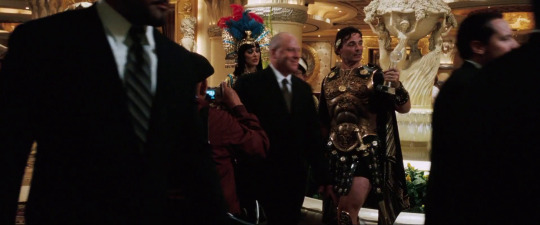
Dude’s like: “why the fuck did he just hand me a big glass dildo?”

Just a quick argument with a supermodel journalist to set up a parallel with US foreign policy in the subtext. Yeah, I make loads of money selling weapons that kill people but look how cool and attractive I am. Lets fuck! #MCU #Marvel #tweetalong #IronMan
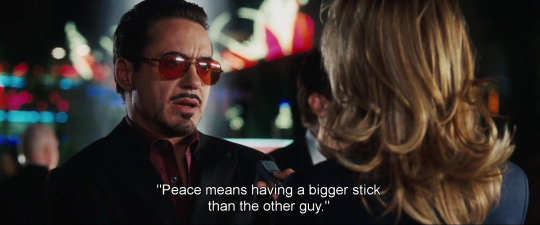
Oh no! That’s your best comeback?... surely you’re not going to let that win you over Everlove? Surely?!

Well I guess we all have moments of weakness.

And literally all it took was a couple of gadgets for her to drop all her morals. #MCU #Marvel #tweetalong #IronMan

Poor Pepper, He's literally a nightmare to work for and now he's flirting inappropriately! Also he forgot her birthday and she didn't care... yeah right. #realwomen #MCU #Marvel #tweetalong #IronMan

Of course his private jet is a strip club. Where is that pole coming from exactly? #MCU #Marvel #tweetalong #IronMan

Why is the business owner doing the job of a salesman right now? Does he really need the commission? #MCU #Marvel #tweetalong #IronMan
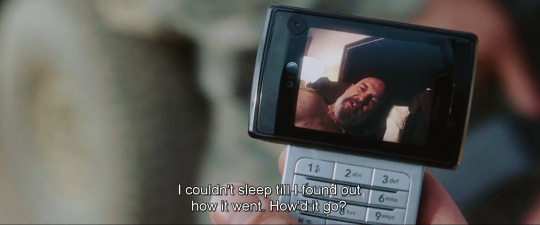
All that technology, like genuine future stuff, and he has literally the shittest phone in the world. #MCU #Marvel #tweetalong #IronMan

Good thing that mad scientist guy happened to be captured by those guys too. Also didn't we just see that he was wearing a bullet proof jacket? How did shrapnel get anywhere near his heart? #MCU #Marvel #tweetalong #IronMan

PROOF!

Oh no! The weapons got into the hands of the naughty men! isn't that what sexy journalist/supermodel woman was talking about? Maybe you should have been paying attention to her argument instead trying to sleep with her? #MCU #Marvel #tweetalong #IronMan

“But Tony... You promised!” :(
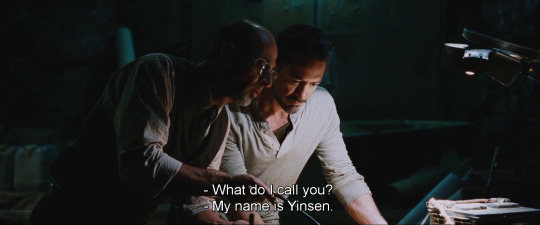
They went all that time without exchanging names? Guy saves your life but nah, funny accent, not worth getting too close. Also NOW you want to small talk, right when he’s holding a pot of molten metal in a pair of forceps?! #MCU #Marvel #tweetalong #IronMan

Oh yeah, just make a couple of rings, stick them together with some copper wire and there you go magic chest battery. Step one, make a ring. #Therestofthefuckingowl #MCU #Marvel #tweetalong #IronMan
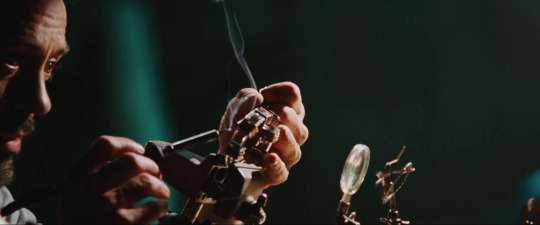
And here we are having a bash at step two...

Hey presto! That was easy.

Well to be honest its about time that the wrongens noticed something wasn't quite right. Man had a massive glowing thing on his chest that looks like its from the future and nobody seemed bothered. #MCU #Marvel #tweetalong #IronMan

For a man who we've established is intelligent Big T has no game. Yeah just leave the blueprints to the secret plan you're working on out on the table. Fortunately the baddies are totally negligent. I'm surprised they remembered to lock the door #MCU #Marvel #tweetalong #IronMan
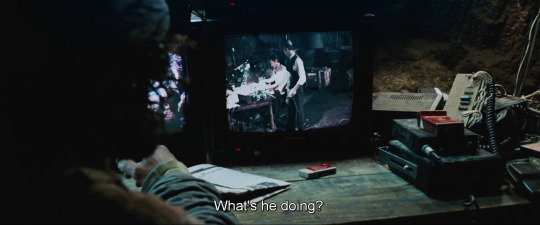
We've already seen that they have CCTV of what Tony and his mate are up to but some how they aren't seeing him assemble a full suit of weaponized armor under their noses? Even after they've been caught with the blueprints?? #MCU #Marvel #tweetalong #IronMan

Could they be any more blatant about what they’re up to?
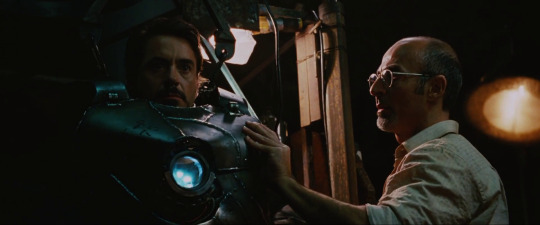
Also why build a suit that leaves the one vulnerable part, the battery that powers it and keeps his heart from being shredded, exposed. 10/10 for visual aesthetic -10000 for common sense. #MCU #Marvel #tweetalong #IronMan

Seems to hold up though, even when shot point blank in the head. Shame his assistant had to die. There could have been some serious competition for chief romantic interest with Pepper later. #MCU #Marvel #tweetalong #IronMan
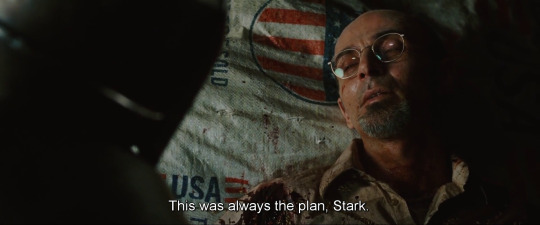
Yeah, no shit. This guy had expendable character written all over him.

What is going on with his legs? Seriously, who has hips that wide? #MCU #Marvel #tweetalong #IronMan

Ahahaha! Silly baddies! Haven’t you realised that your guns are useless!?

Oh no! He's gone down! Looks like the terrorists are going to win after all. #MCU #Marvel #tweetalong #IronMan

Oh... no they fucked it.

Good thing he can fly!

Also good thing that that, way bigger explosion didn't have any nasty shrapnel in it this time. #MCU #Marvel #tweetalong #IronMan

Ah, phew! Good thing the military are here to save the day. Held off till now though obviously because PLOT #MCU #Marvel #tweetalong #IronMan

“Taxi!”

Also yeah, I want an American cheeseburger and a... (hint at sex but surprise with) a press conference. Definitely don't want to go to the hospital, not even after spending days(?) in the desert following a firefight and crash in a metal suit from 100m #MCU #Marvel #IronMan

Fast food and a quickie?

Seriously had enough of his shit...
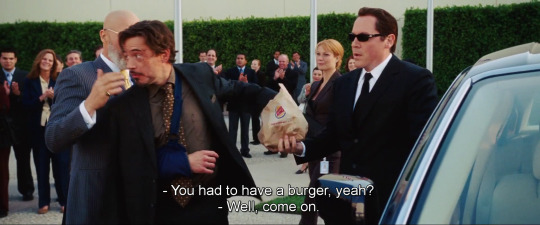
Of course Burger King got that contract. I'm a little bit surprised that Tony didn't ask for a mac book and a bottle of new mountain dew red alert, available in a convenience store near you...#MCU #Marvel #tweetalong #IronMan
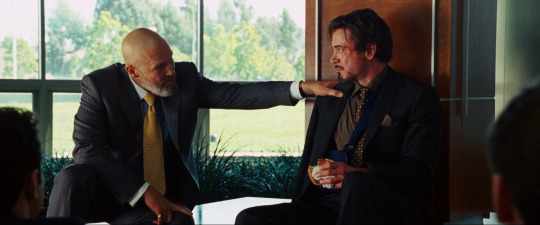
Don't tell me he's grown a conscience! Big T! Think about what you're going to the military industrial complex! What about the economy!? All those people who came out to clap at you getting out of a Rolls Royce are jobless now! #MCU #Marvel #tweetalong #IronMan
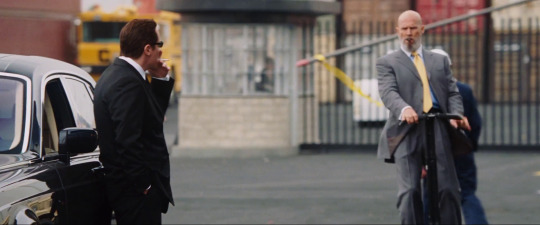
Hashtag UN-nesesary segway #MCU #Marvel #tweetalong #IronMan

Okay Pep, just reach into the massive hole in my chest and grab that loose wire. Don't mind all the puss and blood. Oh you fucked it up, never mind, should have had a doctor do it. To be fair, could have done it himself but wouldn't want to miss this opportunity to flirt #MCU

100% uses that sentient robot arm to wank #MCU #Marvel #tweetalong #IronMan

Yep, just walk into a military base and start talking shit to the commander because you're Tony Stark #MCU #Marvel #tweetalong #IronMan
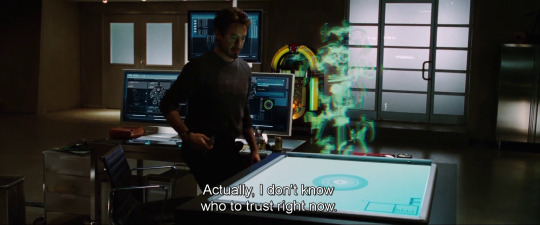
"working on a secret project are we Sir?" - You can trust me, I'm a web connected AI with the same voice as HAL 9000 from 2001: A Space Odyssey. #MCU #Marvel #tweetalong #IronMan

Speaking of wrong hands, who's this with a useless remnant of scrap metal. I think I know who the main antagonist is going to be! #MCU #Marvel #tweetalong #IronMan

“What did you just say about my sunglasses!?”
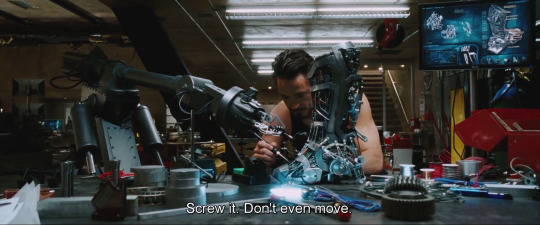
That looks like pretty complex stuff T! Good thing you've got Wankatron to help you out. #MCU #Marvel #tweetalong #IronMan

Oh shit... that's at least 3 months in hospital. Also wouldn't a man of science have worked out exactly how much thrust 10% capacity would generate before testing it on himself. Why not test it on a crash dummy first? #MCU #Marvel #tweetalong #IronMan

Also, hats off to Wankatron for the excellent comedic timing. That bit with the extinguisher. GOLD #MCU #Marvel #tweetalong #IronMan

Okay, how does he still have an arm after that? Tony Stark is a normal human right? I'm not going to find out 10 movies in that hes actually from the planet Joopizoop where everyone is a demi-god am I? #MCU #Marvel #tweetalong #IronMan
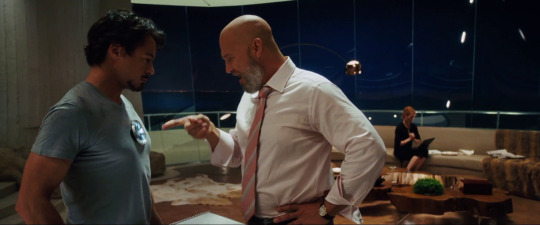
Where does he buy those shirts with the hole cut out of the chest? Reckon that's a custom job. Another example of Big T's genius. #MCU #Marvel #tweetalong #IronMan

Oh yeah. Let's do this highly experimental test that is likely to end in something exploding or going catastrophically wrong in the garage along side 3 to 6 expensive super cars. #justbillionairethings #MCU #Marvel #tweetalong #IronMan

What did you expect dude? I’m getting tired of your bullshit!

WHAT KIND OF HERO RUINS ICECREAMS FOR CHILDREN?!?! #MCU #Marvel #tweetalong #IronMan

Oh! Did it go wrong? Well that will teach you for ignoring HAL 9000!

With great power comes incredible lack of responsibility. There’ll be a pothole there for weeks now. #MCU #Marvel #tweetalong #IronMan
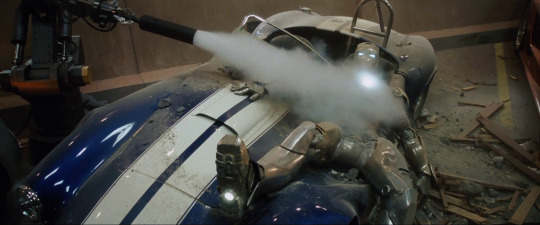
Wankatron giving Tony a taste of his own medicine.
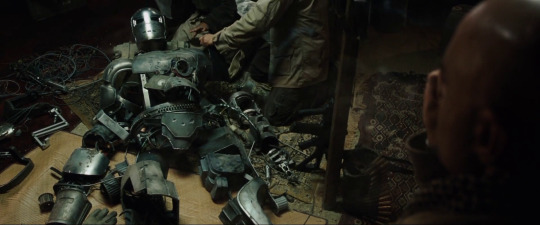
Just as well that ghetto Iron Man is looking like something off of scrapheap challenge #MCU #Marvel #tweetalong #IronMan

Well that was a slap in the face... are there any women who his ‘hero’ does respect?

Also, of course he knows Hugh Hefner. #MCU #Marvel #tweetalong #IronMan
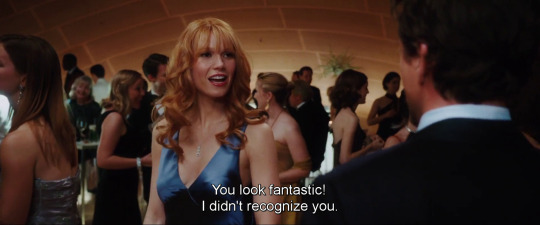
Wow. Pepper is looking on point, must have guys lining up and she still puts up with that crap from Tone. "Am I making you uncomfortable?" Shit man...you're making ME uncomfortable and I'm watching this from my bedroom, in my underwear. #MCU #Marvel #tweetalong #IronMan

“I need a new job.”
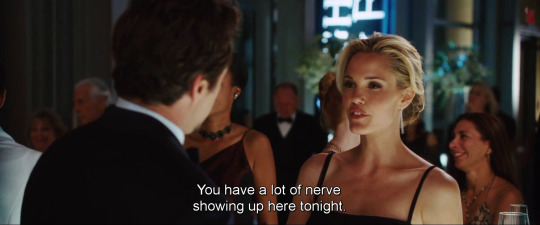
Wait! Isn't that supermodel/journalist from before the hostage situation? Oh and she's got some leverage this time... #MCU #Marvel #tweetalong #IronMan

Oooo! Looks like uncle cigar might be the main antagonist after all.

Somebody’s having a little sulk in the man cave are they? Angrily adjusting your super complex future cyber arm with a screwdriver. I mean...seriously? Screw drivers only do one of two things. They tighten or loosen screws. How much tinkering is really going on there? #MCU #Marvel #tweetalong #IronMan
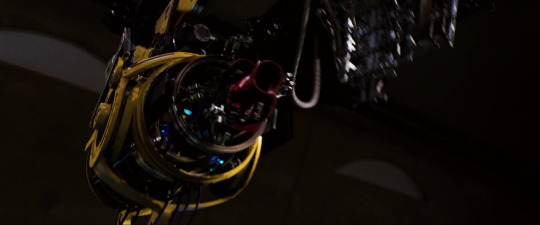
Wow... wankatron had a few upgrades! Now he comes out of the floor and gets you dressed in the morning #MCU #Marvel #tweetalong #IronMan

Terrorists are on the rise again. Oh! You've got a gun, have you? Well here's a massive punch in the stomach.

Or why not have a blast of my...wait, what is that stuff that’s being blown out of my hands? Is it just pure bad-ass?! #MCU #Marvel #tweetalong #IronMan

Oh shit... now he's screwed, no way to save the hostages at gun point..

SHOULDER GUNS! BANG!
AUTO-TARGETING, NO RECOIL, EAT THAT YOU BLOODY WRONGENS! #MCU #Marvel #tweetalong #IronMan

“Cheers mate!”

Uh oh...

Tank gun to the face?

No prob bro. JUST WALK IT OFF #MCU #Marvel #tweetalong #IronMan

Bogey just went supersonic. Good thing that people from Joopidoop are impervious to the effects of instant acceleration or his bones and organs would be jellified by now.

Also good thing that he though to add in some knee flares... you know for disco scenarios and this... #MCU

Whiplash is right... ejecting is no joke. Most people never fly again and are left with severe spinal injuries. Cheers T. NICE ONE. #MCU #Marvel #tweetalong

When your missus catches you having some fun with your newly upgraded wankatron... #mcu #ironman #tweetalong #marvel
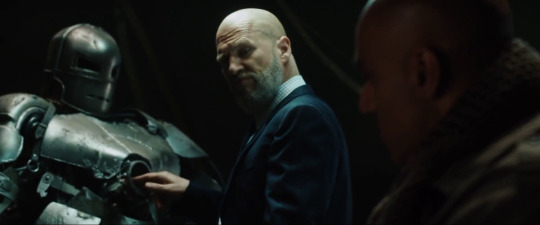
Ghetto ironman looks still looks shit..

no wonder the baddy used his weird sound torture lanyard on him. #MCU #Marvel #tweetalong #IronMan

OH SHIT! Pepper out. So that was the stick that broke the camels back eh? Developing a sense of responsibility and taking the initiative to do the right thing...oh hell nawh! #MCU #Marvel #tweetalong #IronMan
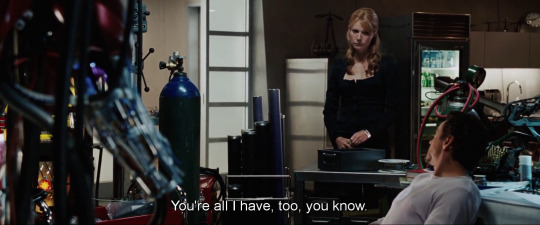
I knew she was bluffing. #MCU #Marvel #tweetalong #IronMan

Wow... how awesome do computers look in this film. I want to work with an interface like that. Who cares that all the icons are on the wrong side!? You can literally type translate and it starts speaking English! #MCU #Marvel #tweetalong #IronMan
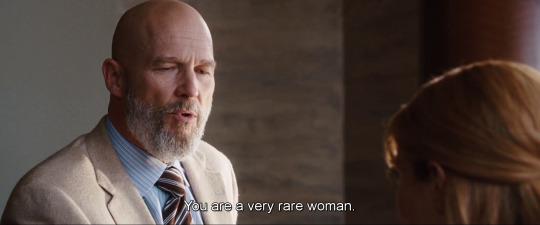
Jesus! She’s not a piece of meat! Damn, the main baddy is kinda creepy. Even without all the murdering and crazy sound torture dongle! RUN POTTS! #MCU #Marvel #tweetalong #IronMan

OH NO! Not Big T! He's gone all pasty 'cause of the torture lanyard!

“You’re not going to try and kiss me are you?”

Oh no, no. Just going to syringe the future battery out of your techno pacemaker... You know.. Baddie stuff.
Wait... is his name Obediah? Seriously how didn't anyone guess he was evil? #MCU #Marvel #tweetalong #IronMan

YES! COME ON WANKATRON! POP IT IN THE HOLE! #MCU #Marvel #tweetalong #IronMan
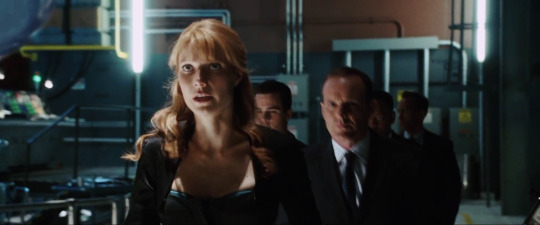
Pepper is the real hero in this story. Just look at that power walk. Either that or I have a massive crush on 2008 Gwyneth Paltrow #MCU #Marvel #tweetalong #IronMan

Shitt... ghetto iron man been hittin' the gym! How did we get from scrapheap challenge to beefcake overnight? I want that protein shake! #therestofthefuckingowl #MCU #Marvel #tweetalong #IronMan

LOL that whole family are like: Holy shit what is happening?! This never happens when we stay with daddy! #MCU #Marvel #tweetalong #IronMan

lets hope it wasn't dad following behind on that motorcycle #MCU #Marvel #tweetalong #IronMan
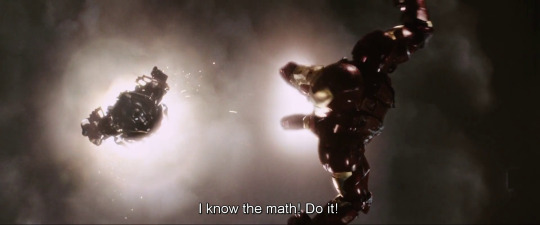
HE KNOWS THE MATH WANKATRON! #MCU #Marvel #tweetalong #IronMan

Ha Ha yeah... chill out Obediah. You've been iced out. Don't you realize that you're just an overweight imitation? #MCU #Marvel #tweetalong #IronMan

those disco knee flares are are literally a get out of jail free card. I've said it before and I'll say it again... bloody good thing he thought of them. #MCU #Marvel #tweetalong #IronMan

“Nooo! Not the disco knee flares! How did you know my only weakness was the boogie!?

Yes Pepper, flip every god damn switch! Meanwhile the masks are off... #MCU #Marvel #tweetalong #IronMan

PUSH IT! #MCU #Marvel #tweetalong #IronMan

God dammit Pepper! What are you waiting for!?

wait for it....

Oh thank goodness for that... it had been almost a whole minute without an explosion! #MCU #Marvel #tweetalong #IronMan

Lets see if we can't shoehorn in a little post action office romance between boss and employee before Tony pars off supermodel/journalist for the third time and does the obvious thing by letting his ego overtake everything. #MCU #Marvel #tweetalong #IronMan

Yep.
At least we can enjoy some well earned Black Sabbath as the credits roll #MCU #Marvel #tweetalong #IronMan

Wait... WHAT IS THIS!? The film is over but there's more? Is this a thing? Oh my word! GET THESE MOTHERFUCKING SUPERHEROS INTO MY BADDY FIGHTING CLUB! #MCU #Marvel #tweetalong #IronMan
The end.
Hope every one of my 27 followers enjoyed that. I'll be posting it to my blog soon in a special post with bonus content and screen shots to accompany each tweet. Look forward to tweeting @ you all soon when I watch The Hulk (2008) next time #MCU #Marvel #tweetalong #IronMan
*UPDATE*
Uh oh, looks like one of my followers didn't like that at all. Good riddance I say! To the remaining 26: PLEASE DON'T LEAVE ME HERE ALL ALONE! :(
0 notes
Text
3 Mayweather-McGregor conspiracy theories that will explain any fight result
However the fight goes, people won’t be satisfied.
Saturday’s mega-bout between Floyd Mayweather and Conor McGregor might be close. It also might not be. Mayweather is a 49-0 boxer, and McGregor is a mixed martial artist who’s never had a competitive boxing match in his life. Mayweather is the heavy betting favorite. If he falls to 49-1 all-time, it’ll be a stunner for the ages.
But even if you think the fight’s going to be suspenseful, there’s one thing you can take to the bank right now: The outcome is going to make a lot of people angry. Neither boxer is a hero, and the event is fighting perceptions — in corners big and small — that various things about it are not real. Conspiracy theories abound.
Theory: McGregor will use illegal moves and end/ruin the fight.
My guess is that McGregor will be beaten... Then he'll get frustrated and just round kick TF outta Floyd
— UG na Rock Boom (@rukibobby) August 24, 2017
I can see Mcgregor saying fuck it during the fight and using his MMA moves on Mayweather.
— Tapia (@Luis_T100) August 20, 2017
Does McGregor still get paid if he decides to kick Mayweather?
— Lexi Arellano (@lexiwub) August 24, 2017
The UFC is McGregor’s primary fighting arena. It’s not that UFC fights don’t have rules. They do. You can’t eye-gouge, crotch-grab, hair-pull, fish-hook, or bite your opponent, among other outlawed acts that normal people would never do to one another. But kicking, elbowing, and kneeing your opponent? All good. Putting him in a chokehold? The literal goal of the fight. These things aren’t permitted in boxing, but if McGregor does them, he’ll spare himself getting beaten up and humiliated.
If McGregor were to kick Mayweather in the head, for instance, that would be the end of the fight. It would also turn the fight into something other than a boxing match, which would make the entire event something of a fraud. But it’s not going to happen, because McGregor stands to lose an outrageous sum of money if it does.
UFC president Dana White, who helped organize the fight, says McGregor is contractually forbidden from using MMA moves.
“There is no way that will happen. That is absolutely in the contract, number one.”
“Number two, this is a boxing match under the rules of the Nevada State Athletic Commission. When you talk about a guy like Floyd Mayweather, the lawsuit if that ever happened...”
“You all know how much Conor likes money. Conor would depart with a whole lot of money if that ever happened.”
This will remain a boxing bout. If McGregor loses, his fans will be insistent that if this had only been a real fight with real moves allowed, he’d have won.
Theory: McGregor’s been sandbagging to lower expectations.
In June, a video leaked of McGregor sparring in boxing gloves. He looked terrible, worrying fans that he’d get obliterated against Mayweather:
People telling me Mayweather will have his hands full trying to land on McGregor -STOP IT! I respect McGregor BUT i ain't Floyd and i landed http://pic.twitter.com/gd4dFi3XUU
— Chris van Heerden (@TheHeat001) June 14, 2017
Mayweather’s trainer, Nate Jones, suggested McGregor’s session was staged:
“I think I’ve seen that sparring. First of all, like I said, I looked at it, but to me it looked (like) it’s a possibility it could be staged. We don’t fall for that, we prepare for anything. Please believe me, I looked at it and I came up with my opinion that it could have been for real but it could have been staged. I don’t know. His style is a different style from Floyd. I don’t want nobody messing with Floyd. He may be more difficult than Floyd’s gonna be for him. Styles make fights. He may give him a different look inside this ring when he’s sparring him than what Floyd’s gonna give him. We don’t take none of that light. That’s a different man. That man’s name does not start with Floyd Mayweather, so we’re not worried about that. We’re gonna train hard. ”
“I looked it and after a while I watched the whole entirety of it, but I know that it could be staged and that don’t mean anything. We’re not gonna take that lightly. That don’t mean nothing to us. I looked at it, but it don’t mean anything. We’re gonna train like never before. I don’t think Floyd looked at it cause he don’t do that. We’re not worried about that, we don’t worry about that. When you look bad, it don’t matter to us because they could be staged. He might get in the ring with somebody else and they could be staged, or it could be him. We’re just going to see what’s going to happen on August 26th when he’s lined up with the very best. We’ll see then.”
If McGregor wins, many are going to think he was putting on a show in that video. It’s hard to imagine a boxer looking that weak and then beating Mayweather without something more complicated being at play.
Theory: This entire fight is a hoax designed to get your money.
This is the theory that’s most flexible and suited to any outcome.
Both fighters have gotten good at looking like they hate the other:
Photo by Ethan Miller/Getty Images
Golfer Rory McIlroy, McGregor’s fellow Irishman, wonders how real that is:
Certainly that's all I've done is follow the build up to this thing. Now that I'm off Twitter and social media, all I do is watch YouTube videos of Conor McGregor.
I'm intrigued. He talks a good game. If you just listen to his press conferences and what he says, you would think that this guy, he's the one with the 50-0 boxing record. It's amazing. I'm a big admirer of him. He talks about visualization and the law of attraction and all this stuff that he believes in it and he vocalizes it, and he has the courage to say what he thinks. I'm a believer in that stuff, and I'm a big advocate of that. And some of the stuff he does wouldn't be my cup of tea, but he believes 100 percent in himself and he believes he's going to go out there on Saturday night and shock the world.
I'm interested just to see how it all plays out, but I just fear that they do all this trash-talking and they go behind the scenes and they are having a laugh and thinking: I can't believe we are talking all this public for a ride. We are all buying into it and they are like, can you believe these people believe this. I just hope it doesn't turn into it and I hope it's not in any way fixed.
It's amazing, like we were talking about, imagine McGregor knocks him out in the first couple of rounds. They would get even more for the rematch. The rematch would be even bigger. So it's just -- I just don't know what that zero on Mayweather's record is worth, and that's the thing. That's his legacy. If he goes down and lies down for ten seconds at some point in that, you know, is that worth making an extra few 100 million? That's sort of up to him.
Yeah, as you can see, I'm very knowledgeable on it. (Laughter) yeah, I'm interested about it. I'm intrigued. We'll see how it goes.
If McGregor knocks out — or even just beats — Mayweather, some are going to think Mayweather let it happen so he could sell a redemption story ahead of a rematch.
If Mayweather does what he’s supposed to do and just grinds down McGregor over a 12-round win, it won’t quell the notion that they both knew this would happen all along. McGregor’s still getting his money, after all. And every time he claimed he’d knock Mayweather out early, he’ll just have been helping to line his own pockets.
That’s in addition to wondering whether the two men are friends having a chuckle about this entire thing when the cameras aren’t rolling.
No matter the outcome, conspiracy theories will run rampant.
If you think Mayweather is an unbeatable fighter who could never lose to a non-boxer in a million years, anything other than a knockout of McGregor could look suspect. Mayweather isn’t a knockout specialist in any circumstance, but he’d be accused of intentionally letting McGregor hang around until a judicial decision. The reason? So that McGregor could complain about an unfair ruling and demand another bout.
If McGregor does get knocked out, people will interpret it the same way. He’ll be leaving himself room to claim he was sick, that a punch caught him by surprise, or that people didn’t get to see the fight they paid for. For the people, McGregor will be in position to call for a rematch. More money will flow ahead of that hypothetical fight.
And if McGregor wins — as McIlroy alludes to — it could still be seen as a setup for another fight. Mayweather’s not going to stay stuck on 49 wins forever — not when a nice, round number is one victory away. And he’s not going out with a loss. Another fight is a virtual certainty, and one worth as much money as this one.
I don’t know what’s going to happen. But I know a lot of viewers won’t be happy.
0 notes
Text
Transfer Windows and /r/LiverpoolFC: A Survival Guide via /r/LiverpoolFC
Transfer Windows and /r/LiverpoolFC: A Survival Guide
In February 2001, the European Commission reached a compromise agreement with European football leagues that prevented clubs from cherry-picking the best players from other clubs mid-season. Prior to the 2002/03 season, clubs could sign players all the way up to March (e.g. United signed Cantona in November of 1992). From 2002, clubs were limited to two fixed periods per year (a month in the winter, and two in the summer) rather than a near-year-round free-for-all. As a result, the transfer window has become a biannual tradition involving mass displays of anticipation, delirium and, in the case of Liverpool, various kinds of references to male genitalia.
The start of news and fan discussion about an player movements during transfer windows depends inversely on the team's performance leading up to the window. In other words, the poorer results have been, the more eager fans are to blame the players (e.g. quality, form, injuries, fit), and the keener the daily rags are to kindle transfer talk and provide them with wish fulfillment ammunition ("HAMSTRUNG HAMMERS CHASE CREAM OF CATALAN INIESTA").
This behaviour is largely driven by the prevailing wisdom of the modern "we are in the business of results" world of football that if the problem is results then the business must be "even more players." While, like everything in football, this is only 50% true, you will find many fans convinced that their team is one or two purchases away from promotion/establishing themselves/the top 4/winning the league/conquering Europe. Smelling the sweet scent of click-bait, journalists and particularly, strangers on the internet with access to social media and concerns about their self-worth, will attempt to guess what football clubs probably want to do with your money and your feelings. This is, in fact, also 50%, but I won't tell you which 50%.
By the close of the window, unsurprisingly, clubs will sign a few players and sell a few to balance the books. Once in a Blue Moon, a club will have a massive clear-out with a spending spree to follow, and just as often, that club will have a barren window with as many signings as a Stephen Hawking book tour (I love you Stephen, please don't give me a Newtonian demonstration; of a bullet, its mass and its acceleration). Clubs normally set expectations via journalists by announcing the size of the gaffer's war chest, as if he's some sort of sea-faring empire.
This summer, we've heard numbers ranging from £100m to £200m if factoring in potential outgoings. On the one hand, it provides fans with confidence that the club is trying to improve, but on the other, it provides ammunition for critics of club management should the transfer window not pan out as planned. Arsene Wenger, for example, is a master at not spending money that is apparently been available for almost a decade (2016, 2015, 2014, 2013, 2012, 2011, 2010). This tradition of feigned excess has continued so long that Arsenal fans, widely cherished for their loveable #banter and self-deprecation, can often be heard amongst the lush birdsong in the serene park atmosphere of Ashburton Grove, calling out, "Spend some fuuuucking money!"
Then there are the ITKs (in-the-knows), an elite set of Twitter accounts that leak transfer and other club information from their internal source, a techncial term for whichever orifice of theirs contains the most bile or shite on a particular day. The term itself originates from football hooliganism, as those who were well-informed about and involved in football firm (hooligan/gang) activities and whatnot were considered to be "in the know." With a similar blatant disregard for human life, the modern ITK wages a brutal turf war with common sense, themselves and occasionally, the English language.
A cynic would say that we should shut everything off and out until September 1st (when the transfer window closes) and just see who the club has signed and sold to avoid having to deal with all the rumourmongers and transfer tattle. But that cynic is a joyless wankstain who:
doesn't read any of the article when it's posted on the sub but has to make a comment about something clearly covered in the second paragraph;
downvotes when they disagree with a comment despite that comment CLEARLY CONTRIBUTING TO THE DISCUSSION;
still thinks that FSG is the absolute worst because they are Yanks and don't care about the culture of a club that they themselves haven't cared about ever, and;
doesn't see the incongruity in wishing for a rich foreigner to buy the club while at the same time not wanting tourists anywhere near Anfield.
The true fan, on the other hand, has already worn down their F5 key, knows the transfer reliability chart by heart, and can tell you in great detail who Amadou, Di Marzipan, Rangnick and Ramy are. Their emotions are tied very closely to the daily news cycle, starting when they wake up and coming to a close as tomorrow's back pages are sent out at 10.30pm each night. Every quote tweeted out by AnfieldHQ (whose logo still looks like a stylised car to me) launches them into delirium or despair, whether it's about pain thresholds, supermarkets or the rides in Blackpool. Theses fans were made for the transfer window and the transfer window is undoubtedly made for them. Long may you suffer, so long as you suffer together.
True fans also have an inexplicable need to relate everything to penises, though this is not always restricted to transfer window shenanigans. "COCKS OUT LADS" and "NO LEAN, NO PEEN" are common refrains. Occasionally these lines get the seasonal treatment when a name-based pun fits: "KLOPPS OUT LADS" or "DIJKS OUT LADS" are more recent examples.
Some go further with TV quotes - "STOP, I CAN ONLY GET SO ERECT" - or talk of edging and violent orgasms. Maybe this is what happens when you have /u/_cumblast_ around. Or maybe it's just #penisbantz amiright, lads? You know, just lads being lads who maybe have some insecurities about penis size, relationships and their sex lives in what is often a senseless, fast-moving world (ha ha!) in which we have struggled to learn how to thrive because we might not have had valuable teenage experiences (omg right?!) to show us how to cope with our fears, anxiety and failures (lol). #CocksOutForFreudianDysphoria, amirite lads?
Speaking of the state of unease or a generalised dissatisfaction with life, let's talk about Blackpool, and more specifically, tapping up. The critical component of tapping dat footballing asset - talking to another team's player about financial terms and whatnot before their club has given the buying club permission to do so - is a grey area. There are obviously rules to prevent this, to prevent clubs from negotiating transfer fees down when they know that a player's head has already been turned. This is why they avoid asking for permission, because it usually requires a fee to be agreed up front. The secret to being happy that nobody tells you about is to just not get caught.
Of course, most clubs do a decent job of keeping conversations with agents and players under wraps and away from prying eyes so that the player's club doesn't have any evidence of their player being tapped up (even if they suspect it). Liverpool are utter, utter wank at this (1, 2, 3, 4, 5, 6, 7). The single-minded determination of this club not to learn from past mistakes is truly admirable.
After convincing van Dijk to ignore advances from Chelsea and City, the press then lauded Liverpool in public over this victory while the club dawdled and didn't make a bid. This is akin to having a wank right before sex with your dream wo/man or to keeping all of your clothes on the entire time you're in bed after - as though /r/me_irl, /r/TIFU and /r/CringeAnarchy were a football club.
By the time late-August rolls around, you will be glad for the football recommencing and some fresh air once you've clambered through the transfer window. We'll be able to go back to watching games, celebrating goals, moaning about decisions/injuries/rivals, harassing /u/HUGE_HOG about WILs, and generally bantering about our penises like proper lads do. Until then, hang in there, there's no getting of Klopp's wild ride.
And just for good measure, here's a quick 8 point survival guide to the transfer window and how to be a better person on /r/liverpoolfc:
Don't get caught
If the answer to the question or suggestion in your post is "no" then don't post it. If the answer is "yes" then post it, unless the answer is just "yes" in which case, don't post it
Be smart
When you are feeling depressed about our transfer activity, remember that you could have paid £45m for Anthony Martial or £30m for Moussa Sissoko and feel better
If you want to know what our line-up is going to look like next season with players we haven't signed yet, then just do it in your head
At the very least, take the weekend off from Liverpool news and transfer rumours; nothing happens on the weekend other than idle speculation. Use the time to craft an amazing hypothetical starting line-up in your head
New players probably don't need songs. In fact, we have plenty of players struggling for one already. I like the Gini Wijnaldum one though - that's a good'un. Do more like that
Here are the transfer window puns I'm aware of, for quick reference. I will add to this if you point me towards any I've missed:
Naby = not be
Keita = key to
Amadou = I'ma do
Dijk = dick
Submitted July 06, 2017 at 06:28PM by djimonia
via reddit http://ift.tt/2sR9HDs
0 notes